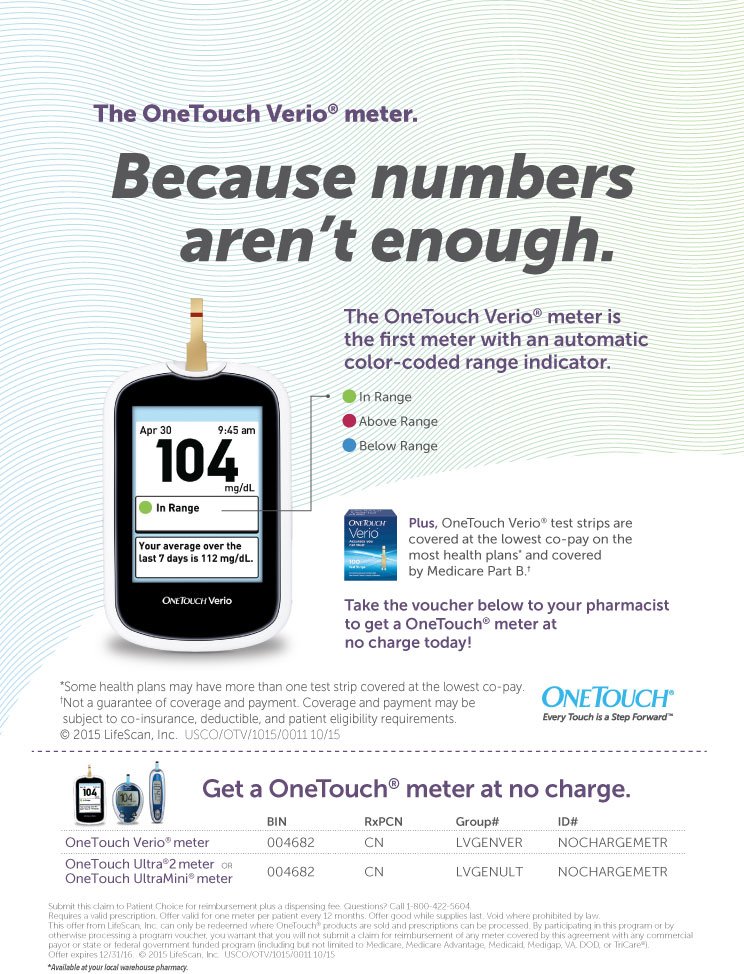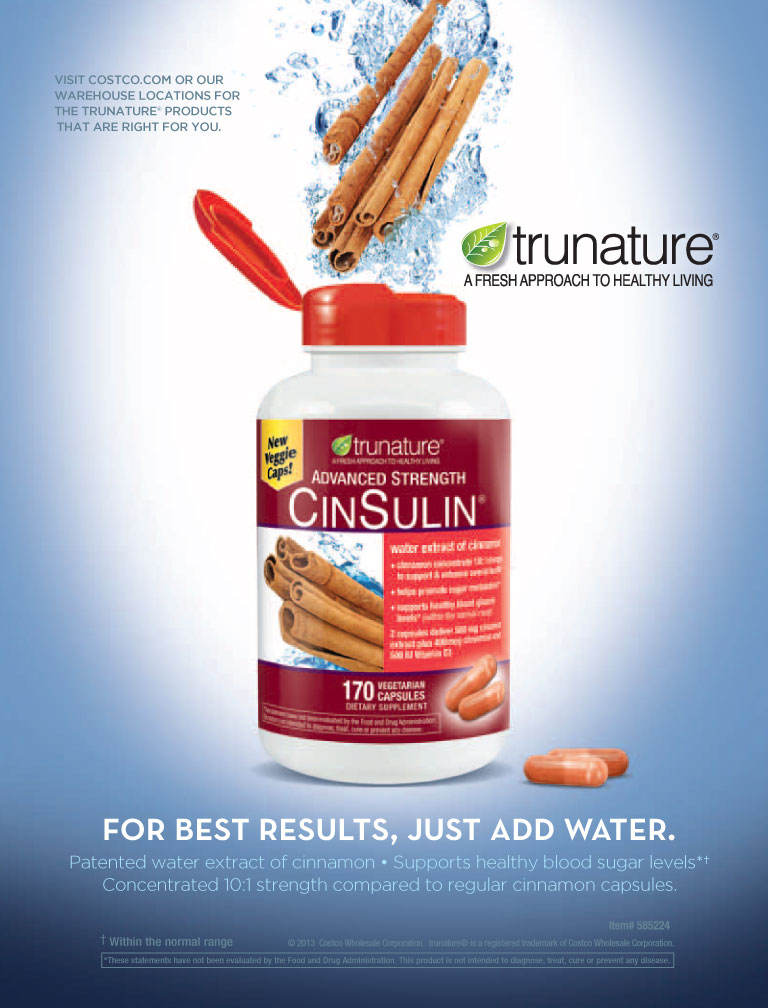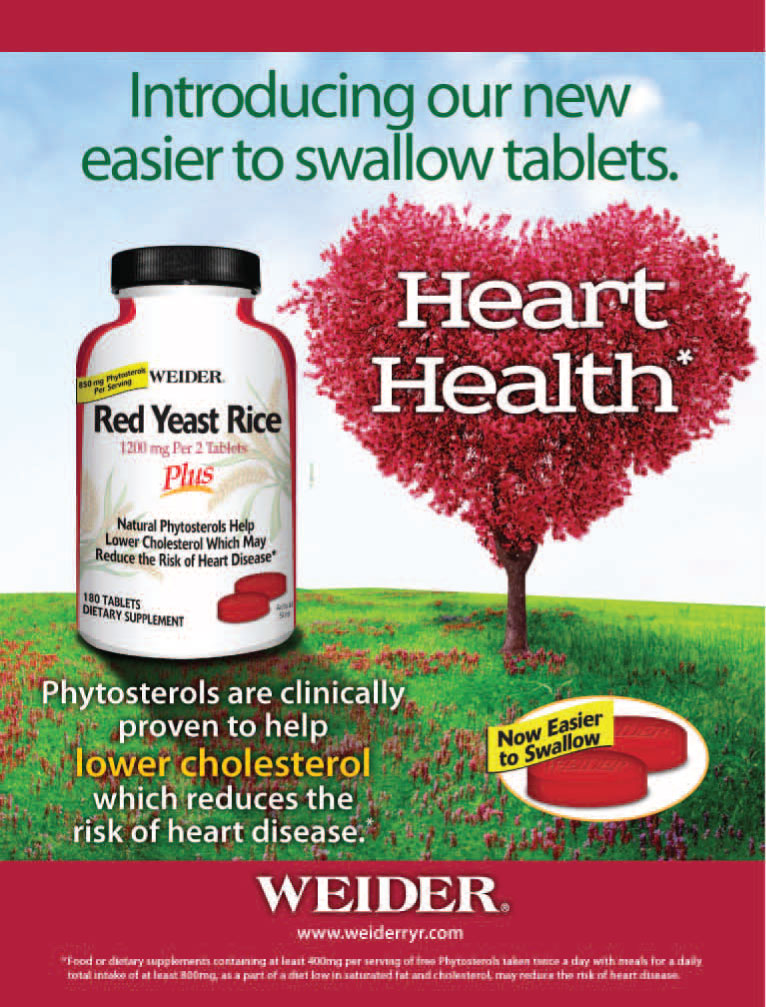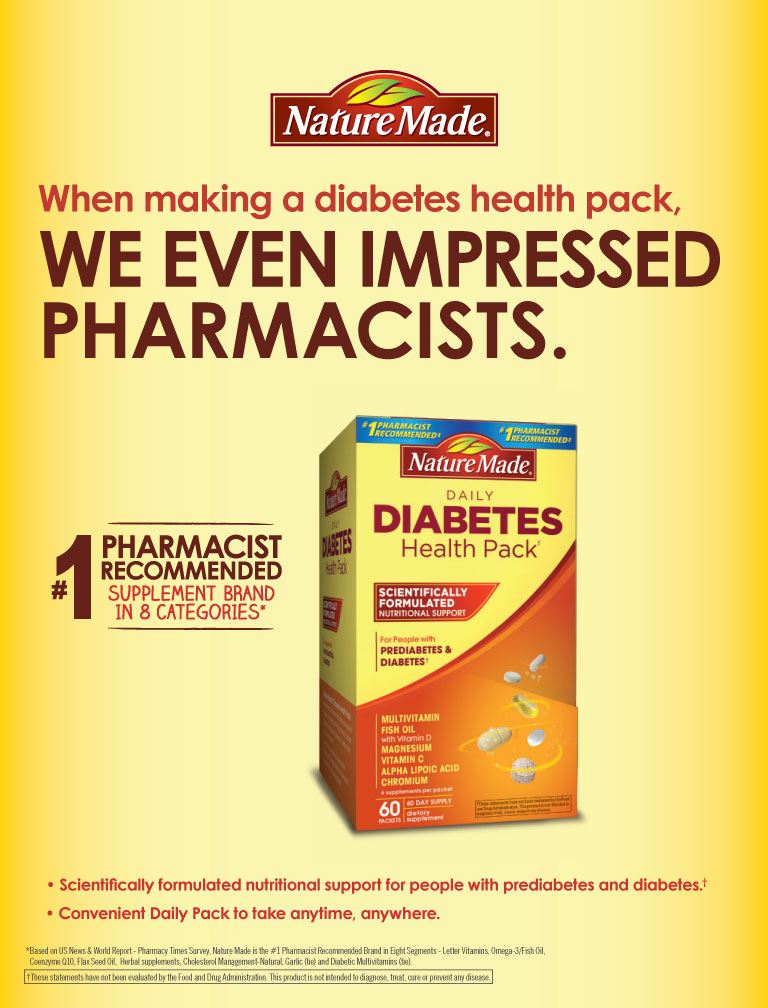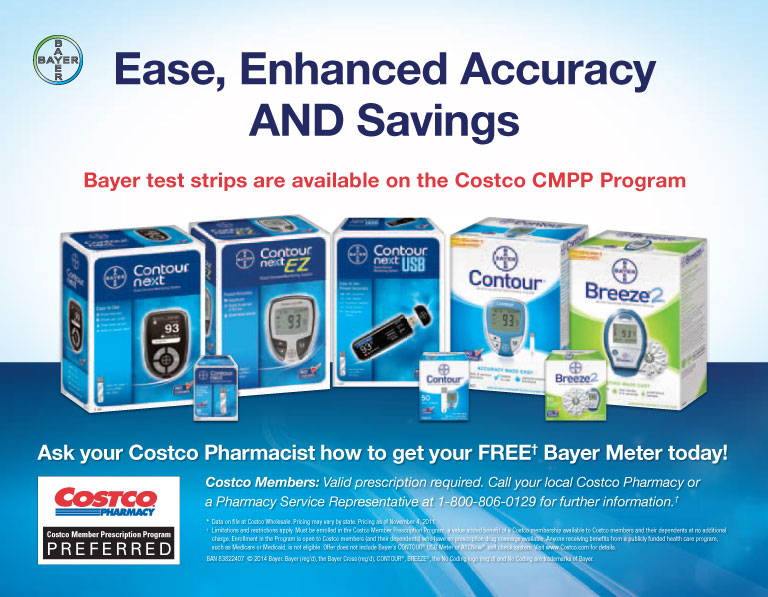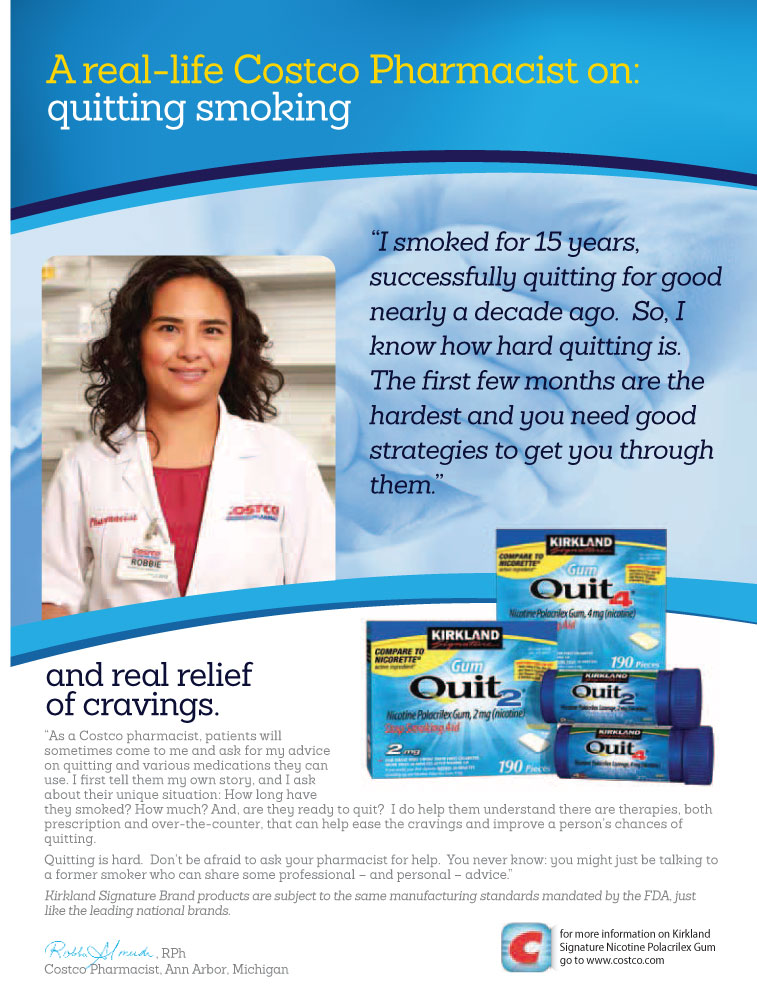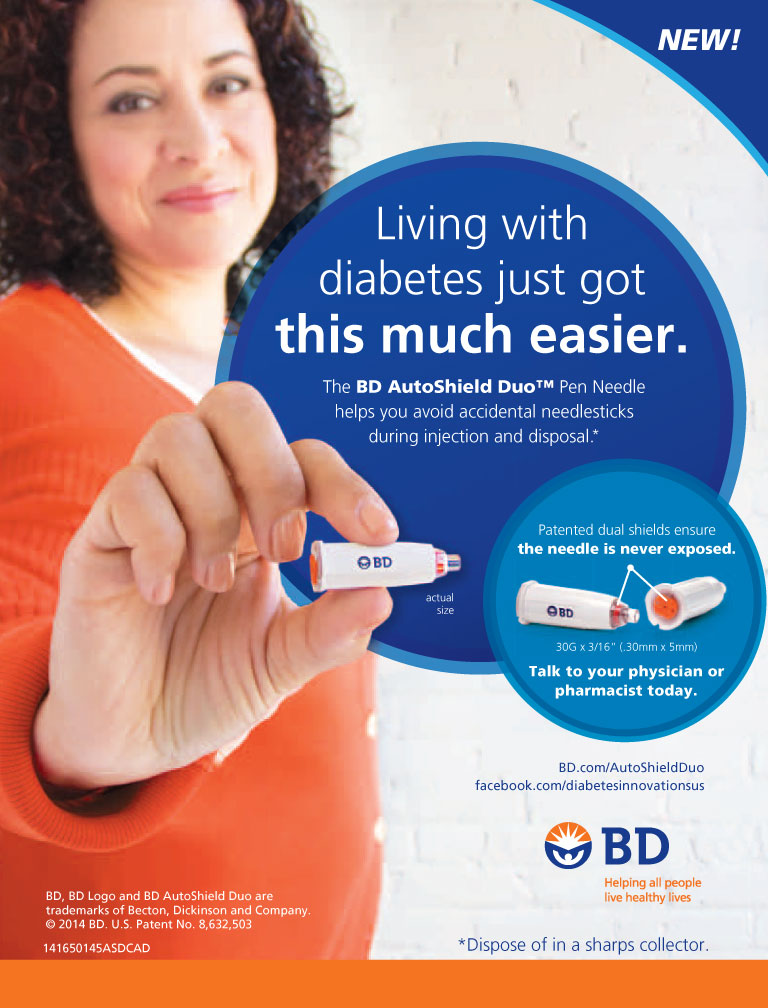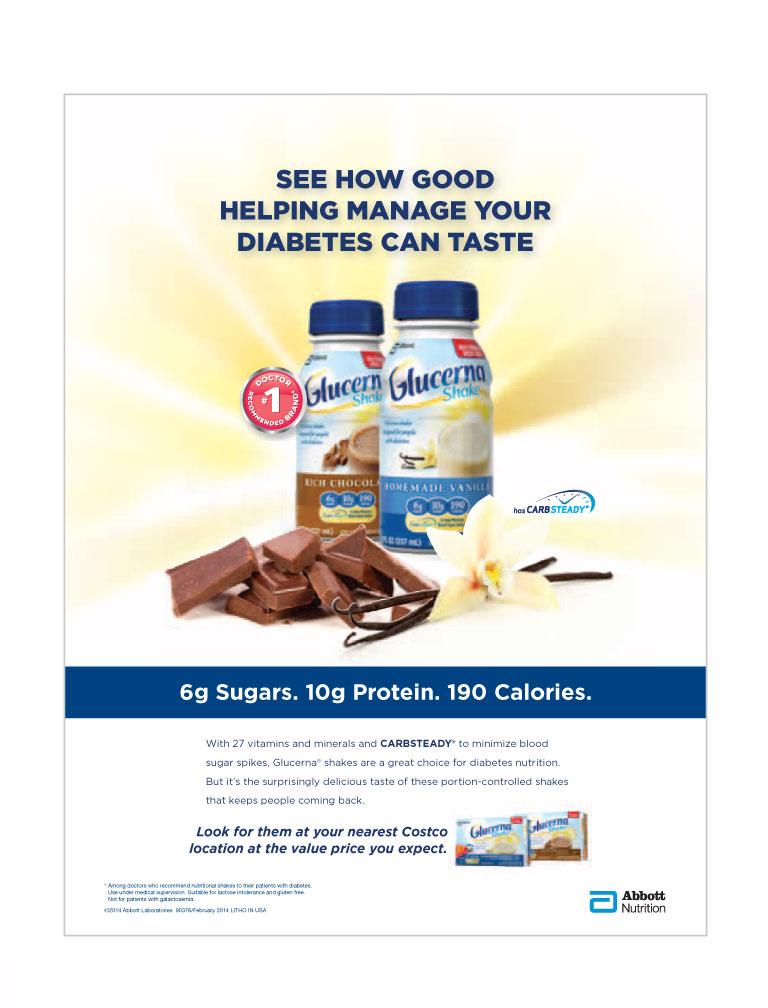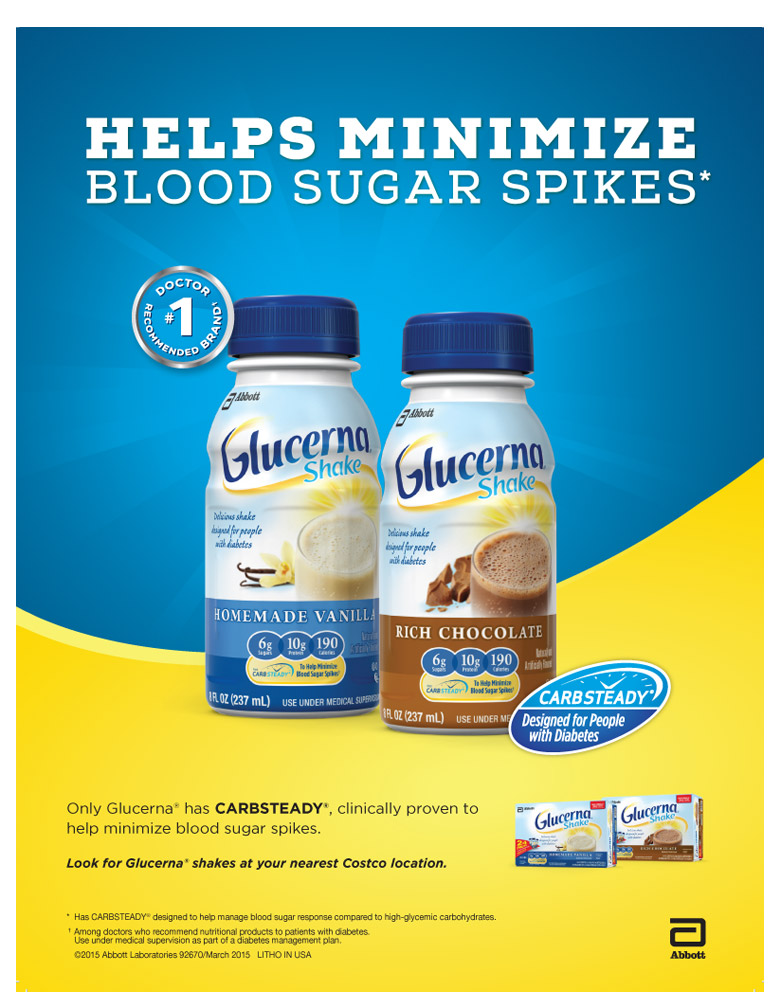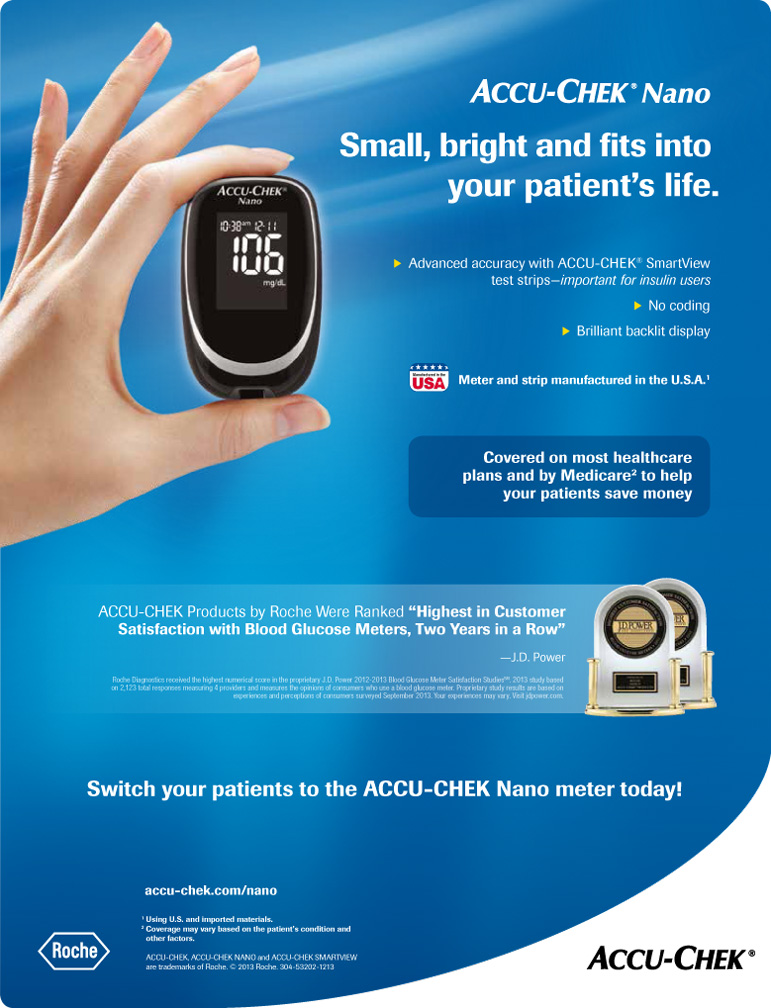
If your heart could choose where you?should live, it might tell you to move to?one of the lovely countries that border?the Mediterranean Sea. The level of?heart disease there is much lower than?other places in the world. Why? Experts?believe that the Mediterranean style of eating?protects against heart disease. And it may?offer even more: Studies show that this way?of eating may also lower the risk of some?types of cancer, obesity and type 2 diabetes.?It may even help prevent Parkinson’s and?Alzheimer’s diseases. The good news is that you don’t have to?pack up and move to Greece or Italy. You?can follow the Mediterranean way of eating?in your very own home. All you need to do?is follow the Mediterranean Diet Pyramid,?adjusting the size of the servings to meet your?daily needs. Read on for more details on how?to fill your plate the Mediterranean way. EVERY MAIN MEAL Eat one or two servings of fruit.?A serving is a small piece of fruit, ? cup?of berries or 17 grapes. Choose fresh fruit?instead of juice or fruit canned in syrup. If?you worry that fruit may raise your blood?glucose level too high, try those that have?a lower glycemic index (GI) value. The?natural sugar found in foods with a lower?GI value enters the bloodstream more?slowly. Good choices include apples,?oranges, strawberries and blueberries. Eat two servings of vegetables (at?least one should be raw). A serving is?? cup cooked or 1 cup of raw vegetables.?You can even fit veggies into your breakfast?menu: Try drinking a glass of low sodium?tomato juice to start your?day. Add tomatoes, onions?and peppers to an?omelet or scrambled?eggs. As your day?goes on, enjoy?more vegetable juice, salads and cooked,?steamed or raw vegetables. Vegetable-rich?soups are great, too. Eat one or two servings of foods that?contain fiber-rich grains. These include?whole grain bread, pasta, rice or couscous.?One serving of a grain food is one slice?(1 ounce) of bread or 1/3 cup of cooked?pasta, rice or couscous. The whole grain?versions of these foods provide a lot?of healthy nutrients that are?lost when the fiber?is taken out. EVERY DAY Drink plenty of water. Some people?need to drink more than others, but?everyone needs to drink some. When?you are well hydrated, your body?will function better. Seltzer water?and herbal tea count as water, too. Eat two servings of low-fat dairy in?the form of milk, yogurt or cheese.?These all help make your bones stronger.?Remember that milk and yogurt are?considered to be carbohydrate-based foods?(one serving is 8 ounces of milk or ? cup?yogurt), while cheese is a protein food. Enjoy olives, nuts and seeds. If you?combine these heart-healthy foods?with different spices, you can make?your Mediterranean Diet meals quite?tasty. If you wish to lose some weight, limit?the amount you eat from this group,?as these foods are high in fat and calories. Use olive oil as your main fat choice.?Olive oil helps lower the LDL (bad)?cholesterol that clogs blood vessels. Olive?oil is rich in calories, so use it in smaller?amounts. The best type to use is extra?virgin. It also has the richest flavor, so you?don’t need to use a lot. Enjoy some wine. A small amount of?wine each day may help lower your risk of?heart disease. Women should limit their?daily intake to one glass (5 ounces). Men?should limit their daily intake to no more?than two glasses (10 ounces). Don’t drink?wine if you have a problem with alcohol,?or if your healthcare provider tells you?that it is not safe for you to do so. WEEKLY Eat two or more servings of?fish, two servings of lean meat?and two to four servings of?eggs. All of these are great sources of?protein. Fish and seafood are rich in heart-healthy?fats. Vegetable oil, nuts and fish?contain heart-healthy omega-3 fatty acids,?which help lower triglycerides (a type of?blood fat), help make your blood vessels?healthier, and may help prevent heart?attacks. Try to avoid processed meat.?Processed meat includes hot dogs,?bacon and cold cuts. These foods?are high in sodium and, often,?unhealthy saturated fat. If you must?have some, limit your intake to no?more than one serving per week. Eat two or more servings of legumes,?such as beans, peas and lentils. These?protein-rich foods are cholesterol-free, high?in fiber and tend to be low in fat. Legumes?contain carbohydrates, as well, so be sure to?count them as one of your carb choices in?your eating plan. One serving of legumes?is ? cup. Limit your intake of potatoes.?Experts who studied the value of the?Mediterranean Diet in people who?have diabetes asked them not to eat?any potatoes. But if you wish to have some,?limit your servings to three or fewer. Limit your sweets. Have two or fewer?servings of sweets, such as cookies, ice?cream and candy each week. WHAT ELSE CAN YOU DO? The Mediterranean?Diet also encourages?several non-food?actions: daily?physical activity, rest?and good times with friends. How you?live your life affects?your heart and other?areas of your body.?If you get plenty of?rest, and are social?and active, your?stress level will be?lower. This way of eating?and living may differ?from how you live?right now, but you?and your heart may?find it worthwhile. By Janis Roszler, MSFT, RD, CDE, LD/N
The post Eat A Heart Healthy Diet appeared first on Spring 2015 Issue | CDiabetes Online Magazine.
]]>
If your heart could choose where you?should live, it might tell you to move to?one of the lovely countries that border?the Mediterranean Sea. The level of?heart disease there is much lower than?other places in the world. Why? Experts?believe that the Mediterranean style of eating?protects against heart disease. And it may?offer even more: Studies show that this way?of eating may also lower the risk of some?types of cancer, obesity and type 2 diabetes.?It may even help prevent Parkinson’s and?Alzheimer’s diseases.
The good news is that you don’t have to?pack up and move to Greece or Italy. You?can follow the Mediterranean way of eating?in your very own home. All you need to do?is follow the Mediterranean Diet Pyramid,?adjusting the size of the servings to meet your?daily needs. Read on for more details on how?to fill your plate the Mediterranean way.
EVERY MAIN MEAL
![]() Eat one or two servings of fruit.?A serving is a small piece of fruit, ? cup?of berries or 17 grapes. Choose fresh fruit?instead of juice or fruit canned in syrup. If?you worry that fruit may raise your blood?glucose level too high, try those that have?a lower glycemic index (GI) value. The?natural sugar found in foods with a lower?GI value enters the bloodstream more?slowly. Good choices include apples,?oranges, strawberries and blueberries.
Eat one or two servings of fruit.?A serving is a small piece of fruit, ? cup?of berries or 17 grapes. Choose fresh fruit?instead of juice or fruit canned in syrup. If?you worry that fruit may raise your blood?glucose level too high, try those that have?a lower glycemic index (GI) value. The?natural sugar found in foods with a lower?GI value enters the bloodstream more?slowly. Good choices include apples,?oranges, strawberries and blueberries.

![]() Eat two servings of vegetables (at?least one should be raw). A serving is?? cup cooked or 1 cup of raw vegetables.?You can even fit veggies into your breakfast?menu: Try drinking a glass of low sodium?tomato juice to start your?day. Add tomatoes, onions?and peppers to an?omelet or scrambled?eggs. As your day?goes on, enjoy?more vegetable juice, salads and cooked,?steamed or raw vegetables. Vegetable-rich?soups are great, too.
Eat two servings of vegetables (at?least one should be raw). A serving is?? cup cooked or 1 cup of raw vegetables.?You can even fit veggies into your breakfast?menu: Try drinking a glass of low sodium?tomato juice to start your?day. Add tomatoes, onions?and peppers to an?omelet or scrambled?eggs. As your day?goes on, enjoy?more vegetable juice, salads and cooked,?steamed or raw vegetables. Vegetable-rich?soups are great, too.
![]() Eat one or two servings of foods that?contain fiber-rich grains. These include?whole grain bread, pasta, rice or couscous.?One serving of a grain food is one slice?(1 ounce) of bread or 1/3 cup of cooked?pasta, rice or couscous. The whole grain?versions of these foods provide a lot?of healthy nutrients that are?lost when the fiber?is taken out.
Eat one or two servings of foods that?contain fiber-rich grains. These include?whole grain bread, pasta, rice or couscous.?One serving of a grain food is one slice?(1 ounce) of bread or 1/3 cup of cooked?pasta, rice or couscous. The whole grain?versions of these foods provide a lot?of healthy nutrients that are?lost when the fiber?is taken out.
EVERY DAY
![]() Drink plenty of water. Some people?need to drink more than others, but?everyone needs to drink some. When?you are well hydrated, your body?will function better. Seltzer water?and herbal tea count as water, too.
Drink plenty of water. Some people?need to drink more than others, but?everyone needs to drink some. When?you are well hydrated, your body?will function better. Seltzer water?and herbal tea count as water, too.
![]() Eat two servings of low-fat dairy in?the form of milk, yogurt or cheese.?These all help make your bones stronger.?Remember that milk and yogurt are?considered to be carbohydrate-based foods?(one serving is 8 ounces of milk or ? cup?yogurt), while cheese is a protein food.
Eat two servings of low-fat dairy in?the form of milk, yogurt or cheese.?These all help make your bones stronger.?Remember that milk and yogurt are?considered to be carbohydrate-based foods?(one serving is 8 ounces of milk or ? cup?yogurt), while cheese is a protein food.

![]() Enjoy olives, nuts and seeds. If you?combine these heart-healthy foods?with different spices, you can make?your Mediterranean Diet meals quite?tasty. If you wish to lose some weight, limit?the amount you eat from this group,?as these foods are high in fat and calories.
Enjoy olives, nuts and seeds. If you?combine these heart-healthy foods?with different spices, you can make?your Mediterranean Diet meals quite?tasty. If you wish to lose some weight, limit?the amount you eat from this group,?as these foods are high in fat and calories.
![]() Use olive oil as your main fat choice.?Olive oil helps lower the LDL (bad)?cholesterol that clogs blood vessels. Olive?oil is rich in calories, so use it in smaller?amounts. The best type to use is extra?virgin. It also has the richest flavor, so you?don’t need to use a lot.
Use olive oil as your main fat choice.?Olive oil helps lower the LDL (bad)?cholesterol that clogs blood vessels. Olive?oil is rich in calories, so use it in smaller?amounts. The best type to use is extra?virgin. It also has the richest flavor, so you?don’t need to use a lot.
![]() Enjoy some wine. A small amount of?wine each day may help lower your risk of?heart disease. Women should limit their?daily intake to one glass (5 ounces). Men?should limit their daily intake to no more?than two glasses (10 ounces). Don’t drink?wine if you have a problem with alcohol,?or if your healthcare provider tells you?that it is not safe for you to do so.
Enjoy some wine. A small amount of?wine each day may help lower your risk of?heart disease. Women should limit their?daily intake to one glass (5 ounces). Men?should limit their daily intake to no more?than two glasses (10 ounces). Don’t drink?wine if you have a problem with alcohol,?or if your healthcare provider tells you?that it is not safe for you to do so.
WEEKLY
![]() Eat two or more servings of?fish, two servings of lean meat?and two to four servings of?eggs. All of these are great sources of?protein. Fish and seafood are rich in heart-healthy?fats. Vegetable oil, nuts and fish?contain heart-healthy omega-3 fatty acids,?which help lower triglycerides (a type of?blood fat), help make your blood vessels?healthier, and may help prevent heart?attacks.
Eat two or more servings of?fish, two servings of lean meat?and two to four servings of?eggs. All of these are great sources of?protein. Fish and seafood are rich in heart-healthy?fats. Vegetable oil, nuts and fish?contain heart-healthy omega-3 fatty acids,?which help lower triglycerides (a type of?blood fat), help make your blood vessels?healthier, and may help prevent heart?attacks.

![]() Try to avoid processed meat.?Processed meat includes hot dogs,?bacon and cold cuts. These foods?are high in sodium and, often,?unhealthy saturated fat. If you must?have some, limit your intake to no?more than one serving per week.
Try to avoid processed meat.?Processed meat includes hot dogs,?bacon and cold cuts. These foods?are high in sodium and, often,?unhealthy saturated fat. If you must?have some, limit your intake to no?more than one serving per week.
![]() Eat two or more servings of legumes,?such as beans, peas and lentils. These?protein-rich foods are cholesterol-free, high?in fiber and tend to be low in fat. Legumes?contain carbohydrates, as well, so be sure to?count them as one of your carb choices in?your eating plan. One serving of legumes?is ? cup.
Eat two or more servings of legumes,?such as beans, peas and lentils. These?protein-rich foods are cholesterol-free, high?in fiber and tend to be low in fat. Legumes?contain carbohydrates, as well, so be sure to?count them as one of your carb choices in?your eating plan. One serving of legumes?is ? cup.
![]() Limit your intake of potatoes.?Experts who studied the value of the?Mediterranean Diet in people who?have diabetes asked them not to eat?any potatoes. But if you wish to have some,?limit your servings to three or fewer.
Limit your intake of potatoes.?Experts who studied the value of the?Mediterranean Diet in people who?have diabetes asked them not to eat?any potatoes. But if you wish to have some,?limit your servings to three or fewer.
![]() Limit your sweets. Have two or fewer?servings of sweets, such as cookies, ice?cream and candy each week.
Limit your sweets. Have two or fewer?servings of sweets, such as cookies, ice?cream and candy each week.
WHAT ELSE CAN YOU DO?
 The Mediterranean?Diet also encourages?several non-food?actions: daily?physical activity, rest?and good times with
The Mediterranean?Diet also encourages?several non-food?actions: daily?physical activity, rest?and good times with
friends. How you?live your life affects?your heart and other?areas of your body.?If you get plenty of?rest, and are social?and active, your?stress level will be?lower.
This way of eating?and living may differ?from how you live?right now, but you?and your heart may?find it worthwhile.
By Janis Roszler, MSFT, RD, CDE, LD/N
The post Eat A Heart Healthy Diet appeared first on Spring 2015 Issue | CDiabetes Online Magazine.
]]>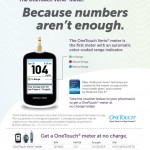
Print out this ad and bring it to your Costco pharmacist for your free meter.
The post No Charge OneTouch? Meter Coupon appeared first on Spring 2015 Issue | CDiabetes Online Magazine.
]]>
Print out this ad and bring it to your Costco pharmacist for your free meter.
Click here for a PDF of this ad
The post No Charge OneTouch? Meter Coupon appeared first on Spring 2015 Issue | CDiabetes Online Magazine.
]]>
When it comes to controlling your blood glucose, you have probably researched the impact of everything from food, to exercise, to weight control. But have you looked into how spices may impact it? Cinnamon is a spice that doesn’t just add great flavor to foods; it may help to lower blood glucose as well. The best benefit it offers is that it’s all-natural and considered safe for most people with diabetes. Does it sound too good to be true? In Medieval times, cinnamon was used for medicinal purposes thanks to its high antioxidant properties. Research now shows us that it may be a powerful player in the fight against diabetes. Cinnamon may help to lower blood glucose levels by decreasing insulin resistance. When your cells become resistant to insulin, the glucose-lowering hormone in your body, they do not allow insulin to carry glucose into your cells. This results in glucose remaining in your bloodstream and rising over time, eventually leading to diabetes. Both whole cinnamon and extracted cinnamon have been shown to lower blood glucose levels. Cinnamon has also been shown to help reduce unhealthy LDL cholesterol levels and blood pressure, both of which are conditions that can increase your risk of heart disease. One down side is that everything that Mother Nature puts into the cinnamon plant also ends up in the finished product. This includes water soluble as well as fat soluble compounds. Our bodies have no problem processing water soluble compounds, but fat soluble compounds tend to be stubborn for our bodies to digest. When choosing a form of cinnamon, we suggest you look for a water extracted concentrate without the fat soluble compounds. Water extracted forms can maximize the health benefits, while minimizing the risks of fat soluble buildup. The extraction process allows the beneficial water soluble components of cinnamon to stay, providing you with the same health benefits of whole cinnamon in a much smaller portion. When looking for water extracted cinnamon, it’s important that you read the label and look specifically for the term “water extracted.” Because it is more concentrated, you can take fewer capsules to get all the health benefits of cinnamon. This may be more practical than trying to incorporate large amounts of whole cinnamon into your meal plan. CinSulin water-extracted cinnamon is backed by five human clinical studies, all of which are double blind, peer reviewed and published. In addition, UC Davis completed a meta analysis to validate the results of these human clinical studies. They found support that water extracted cinnamon lowered fasting blood glucose an average of 10%. If you are considering using cinnamon to help control blood glucose levels, make sure you discuss this with your certified diabetes educator or other healthcare provider. If you use cinnamon in combination with other medicines or supplements that also lower glucose levels, you may increase your risk of hypoglycemia. Your healthcare provider can work with you to make sure you incorporate cinnamon into your diabetes treatment plan in a way that works best for you. By Erin Palinski-Wade RD, LDN, CDE
The post How Water Extracted Cinnamon Can Improve Your Blood Glucose Control appeared first on Spring 2015 Issue | CDiabetes Online Magazine.
]]>
When it comes to controlling your blood glucose, you have probably researched the impact of everything from food, to exercise, to weight control. But have you looked into how spices may impact it? Cinnamon is a spice that doesn’t just add great flavor to foods; it may help to lower blood glucose as well. The best benefit it offers is that it’s all-natural and considered safe for most people with diabetes.
Does it sound too good to be true? In Medieval times, cinnamon was used for medicinal purposes thanks to its high antioxidant properties. Research now shows us that it may be a powerful player in the fight against diabetes.
Cinnamon may help to lower blood glucose levels by decreasing insulin resistance. When your cells become resistant to insulin, the glucose-lowering hormone in your body, they do not allow insulin to carry glucose into your cells. This results in glucose remaining in your bloodstream and rising over time, eventually leading to diabetes. Both whole cinnamon and extracted cinnamon have been shown to lower blood glucose levels. Cinnamon has also been shown to help reduce unhealthy LDL cholesterol levels and blood pressure, both of which are conditions that can increase your risk of heart disease.
One down side is that everything that Mother Nature puts into the cinnamon plant also ends up in the finished product. This includes water soluble as well as fat soluble compounds. Our bodies have no problem processing water soluble compounds, but fat soluble compounds tend to be stubborn for our bodies to digest.
When choosing a form of cinnamon, we suggest you look for a water extracted concentrate without the fat soluble compounds. Water extracted forms can maximize the health benefits, while minimizing the risks of fat soluble buildup. The extraction process allows the beneficial water soluble components of cinnamon to stay, providing you with the same health benefits of whole cinnamon in a much smaller portion.
When looking for water extracted cinnamon, it’s important that you read the label and look specifically for the term “water extracted.” Because it is more concentrated, you can take fewer capsules to get all the health benefits of cinnamon. This may be more practical than trying to incorporate large amounts of whole cinnamon into your meal plan.
CinSulin water-extracted cinnamon is backed by five human clinical studies, all of which are double blind, peer reviewed and published. In addition, UC Davis completed a meta analysis to validate the results of these human clinical studies. They found support that water extracted cinnamon lowered fasting blood glucose an average of 10%.
If you are considering using cinnamon to help control blood glucose levels, make sure you discuss this with your certified diabetes educator or other healthcare provider. If you use cinnamon in combination with other medicines or supplements that also lower glucose levels, you may increase your risk of hypoglycemia. Your healthcare provider can work with you to make sure you incorporate cinnamon into your diabetes treatment plan in a way that works best for you.
By Erin Palinski-Wade RD, LDN, CDE
The post How Water Extracted Cinnamon Can Improve Your Blood Glucose Control appeared first on Spring 2015 Issue | CDiabetes Online Magazine.
]]>
The post trunature? Advanced Strength CinSulin?, 170 Capsules appeared first on Spring 2015 Issue | CDiabetes Online Magazine.
]]>
The post trunature? Advanced Strength CinSulin?, 170 Capsules appeared first on Spring 2015 Issue | CDiabetes Online Magazine.
]]>
If you have been told you have high?cholesterol, you most likely want to take?action. If you are already on medications?to control diabetes, you may be looking?for natural options to avoid additional?medications. The good news is that?cholesterol, for many individuals, can be?managed through diet and lifestyle changes. ?Although this approach takes some work,?in three to six months, you may be thrilled?with the changes in your cholesterol levels. Eat Your?Veggies One of the top ways?to help reduce your?cholesterol levels is?by losing weight if?you are above an?ideal body weight.?Losing just as little?as 5-10% of your?total body weight can?result in improved?total cholesterol,?lower LDL cholesterol?levels, and elevated?HDL cholesterol.?To help with this,?focus on filling your?plate at each meal?at least halfway?with vegetables.?Since vegetables are?loaded with fiber and?contain few calories,?filling your plate with?these allows you to?take in less calories?while feeling full?and satisfied. And?they have another?health bonus as well. Vegetables are rich in?soluble fiber, a fiber?that helps to bind to?cholesterol and flush?it from your body. So?not only will eating?more vegetables help?to shed pounds, but?it will help to further?reduce cholesterol as?well. When preparing?vegetables, choose?steamed options?over sautéed or?fried varieties to?prevent taking in?additional calories. Get Moving Adding daily exercise?is also a terrific?way to improve?cholesterol levels as?well as promote a?healthy body weight.?Increasing your daily?activity can help to?reduce total cholesterol?and LDL-cholesterol?levels, while raising?the protective?HDL cholesterol.?The general?recommendation is to?be physically active?for at least 60 minutes?most days of the week.?However, remember?that any movement is?better than none at all. Consider Adding?Weider’s Red?Yeast Rice PLUS Red yeast rice is?unique, natural?product that has?been used in?Chinese medicine for?centuries. It contains?several ingredients?that may help to lower?cholesterol, including?monacolin K,?also known as?lovastatin. Research?has found red yeast?rice to significantly?lower unhealthy?LDL cholesterol?levels. Weider’s Red?Yeast Rice PLUS?has combined the?power of red yeast?rice and added in?both phytosterols?and microalgae.?Phytosterols are?steroid compounds?found in plant?cell membranes,?which have been?found to reduce?cholesterol and?improve heart health.?The combination of?phytosterols with?microalgae allows for?increased absorption?for even greater?cardiac benefits. Although red?yeast rice may be an?effective way to lower?cholesterol levels, it?may pose some of the?same risks as statin?medications. For this?reason, it may not?be a safe alternative?for some individuals?including those?with kidney or liver?disease, those that are?pregnant or nursing.?If you are currently?taking statins or other?cholesterol medication?to lower your overall?cholesterol levels?or any drugs that?may suppress your?immune system, red?yeast rice may not?be an appropriate?option for you. Weider’s Red Yeast?Rice may be an?effective, natural way to?help lower cholesterol?levels in combination?with dietary and?lifestyle changes. As?with any supplement,?it is recommended you?discuss this product?with your physician?prior to use. By Erin Palinski-Wade, RD, CDE, LDN, CPT
The post Natural Ways To Lower Cholesterol appeared first on Spring 2015 Issue | CDiabetes Online Magazine.
]]>
If you have been told you have high?cholesterol, you most likely want to take?action. If you are already on medications?to control diabetes, you may be looking?for natural options to avoid additional?medications. The good news is that?cholesterol, for many individuals, can be?managed through diet and lifestyle changes. ?Although this approach takes some work,?in three to six months, you may be thrilled?with the changes in your cholesterol levels.
Eat Your?Veggies
One of the top ways?to help reduce your?cholesterol levels is?by losing weight if?you are above an?ideal body weight.?Losing just as little?as 5-10% of your?total body weight can?result in improved?total cholesterol,?lower LDL cholesterol?levels, and elevated?HDL cholesterol.?To help with this,?focus on filling your?plate at each meal?at least halfway?with vegetables.?Since vegetables are?loaded with fiber and?contain few calories,?filling your plate with?these allows you to?take in less calories?while feeling full?and satisfied. And?they have another?health bonus as well. Vegetables are rich in?soluble fiber, a fiber?that helps to bind to?cholesterol and flush?it from your body. So?not only will eating?more vegetables help?to shed pounds, but?it will help to further?reduce cholesterol as?well. When preparing?vegetables, choose?steamed options?over sautéed or?fried varieties to?prevent taking in?additional calories.
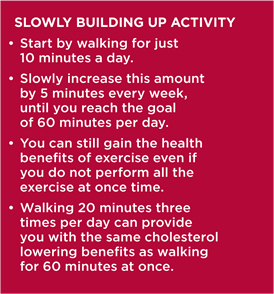 Get Moving
Get Moving
Adding daily exercise?is also a terrific?way to improve?cholesterol levels as?well as promote a?healthy body weight.?Increasing your daily?activity can help to?reduce total cholesterol?and LDL-cholesterol?levels, while raising?the protective?HDL cholesterol.?The general?recommendation is to?be physically active?for at least 60 minutes?most days of the week.?However, remember?that any movement is?better than none at all.
Consider Adding?Weider’s Red?Yeast Rice PLUS
Red yeast rice is?unique, natural?product that has?been used in?Chinese medicine for?centuries. It contains?several ingredients?that may help to lower?cholesterol, including?monacolin K,?also known as?lovastatin. Research?has found red yeast?rice to significantly?lower unhealthy?LDL cholesterol?levels. Weider’s Red?Yeast Rice PLUS?has combined the?power of red yeast?rice and added in?both phytosterols?and microalgae.?Phytosterols are?steroid compounds?found in plant?cell membranes,?which have been?found to reduce?cholesterol and?improve heart health.?The combination of?phytosterols with?microalgae allows for?increased absorption?for even greater?cardiac benefits.
Although red?yeast rice may be an?effective way to lower?cholesterol levels, it?may pose some of the?same risks as statin?medications. For this?reason, it may not?be a safe alternative?for some individuals?including those?with kidney or liver?disease, those that are?pregnant or nursing.?If you are currently?taking statins or other?cholesterol medication?to lower your overall?cholesterol levels?or any drugs that?may suppress your?immune system, red?yeast rice may not?be an appropriate?option for you.
Weider’s Red Yeast?Rice may be an?effective, natural way to?help lower cholesterol?levels in combination?with dietary and?lifestyle changes. As?with any supplement,?it is recommended you?discuss this product?with your physician?prior to use.
By Erin Palinski-Wade, RD, CDE, LDN, CPT
The post Natural Ways To Lower Cholesterol appeared first on Spring 2015 Issue | CDiabetes Online Magazine.
]]>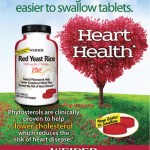
For more information click here
The post Weider Red Yeast Rice appeared first on Spring 2015 Issue | CDiabetes Online Magazine.
]]>
For more information click here
The post Weider Red Yeast Rice appeared first on Spring 2015 Issue | CDiabetes Online Magazine.
]]>
In a recent study?published in?in the journal?Diabetes Care,?experts found that?people who ate lots of?fish and limited their?intake of poultry and?red meat lowered their?risk of heart disease?and type 2?diabetes. People in?the study who were?vegetarians in the?study saw the greatest?drop in risk, but you?don’t have to stop?eating animal products?to enjoy improved?health. Here are a few?ways to start to eat like?those in the study. Q: HOW DO I EAT?MORE FISH? Many of the people in?the study who lowered?their risk of diabetes?and heart disease ate?a lot of fi sh. Fish only?takes a few minutes to?prepare. Bake, broil,?grill or poach your?fish, but don’t fry it.?Fried foods provide?extra calories you?don’t need and may?have unhealthy trans?fats. Find ways to?enjoy heart-healthy?fish, such as tuna,?salmon, herring and?sardines at some of?your meals. Some?people start their day?with a piece of heart-healthy?herring at breakfast or enjoy it?for a snack. For lunch,?have tuna or salmon?salad made with a?fat-free or low-fat?mayonnaise. Make the?sandwich on whole?grain bread or add the?fi sh to a tossed green?salad. Q: HOW DO I?STILL GET ENOUGH?PROTEIN? Protein foods include?red meat, poultry,?beans, nuts, fish,?tofu, eggs and low-fat?cheese. Think about?how much protein?you eat at meals. The?amount of healthy?protein you eat should?fit into ? of a 9-inch?dinner plate and be?about the size of a?deck of cards. If you?want to limit your?meat or poultry intake,?eat them in the correct?healthy protein serving?size. Don’t take a large?chicken breast that?fills your plate or a big?steak that spills over?the sides. Q: WHAT ARE?GOOD WHOLE?GRAIN CHOICES? Some good choices are?brown rice or whole?wheat pasta and nonstarchy?vegetables,?such as broccoli,?cauliflower, tomatoes,?lettuce and zucchini. Q: CAN I STILL?EAT EGGS? If you are an egg lover,?you may be able to eat?eggs as your protein?option at some of your?meals. A large, multi-year?study showed?no link between the?eggs people ate and?their cholesterol?level or risk for type?2 diabetes. Ask your?healthcare provider?or registered dietitian?how many whole eggs?are right for you, and?how you can fit them?into your meal plan. Q: HOW DO I EAT?MORE LOW-FAT?CHEESE? Replace some or all?of the meat in your?sandwich or salad with?a low-fat cheese. If you?make a sandwich, feel?free to pile your fresh?vegetables up high.?Veggies are great for?your health and are?very low in calories. Q: WHAT ARE?SOME MEAT?ALTERNATIVES? The word seitan may?sound funny, but it?is a great vegetarian?product. It replaces?meat in just about?any recipe, such as?stews, chili and other?dishes. Seitan is made?from wheat protein.?It looks like meat?and has a meat-like?texture.?Most health food?stores sell it. You may?also find it sold as?mock meat crumbles?in the freezer section?of your local market. Tofu is another protein?product you can use?in place of meat. Tofu?picks up the flavor?of the foods you?cook with it. It can?be prepared in many?ways: You can panbrown?it, put cubes?into soup, bake cutlets?in a sauce or stir-fry it. Q: WHAT?ABOUT BEING A?VEGETARIAN? If you want to become?a vegetarian and cut?some or all animal?products from your?meal plan, do so with?the help of a registered?dietitian. Animal?products provide?your body with many?important nutrients,?such as vitamin B12?and iron, that are?impossible or difficult?to get from plant?foods alone. By Janis Roszler?RD, CDE, LD/N
The post Eat Healthy To Live Healthy appeared first on Spring 2015 Issue | CDiabetes Online Magazine.
]]>
In a recent study?published in?in the journal?Diabetes Care,?experts found that?people who ate lots of?fish and limited their?intake of poultry and?red meat lowered their?risk of heart disease?and type 2?diabetes. People in?the study who were?vegetarians in the?study saw the greatest?drop in risk, but you?don’t have to stop?eating animal products?to enjoy improved?health. Here are a few?ways to start to eat like?those in the study.
Q: HOW DO I EAT?MORE FISH?
Many of the people in?the study who lowered?their risk of diabetes?and heart disease ate?a lot of fi sh. Fish only?takes a few minutes to?prepare. Bake, broil,?grill or poach your?fish, but don’t fry it.?Fried foods provide?extra calories you?don’t need and may?have unhealthy trans?fats. Find ways to?enjoy heart-healthy?fish, such as tuna,?salmon, herring and?sardines at some of?your meals. Some?people start their day?with a piece of heart-healthy?herring at breakfast or enjoy it?for a snack. For lunch,?have tuna or salmon?salad made with a?fat-free or low-fat?mayonnaise. Make the?sandwich on whole?grain bread or add the?fi sh to a tossed green?salad.
Q: HOW DO I?STILL GET ENOUGH?PROTEIN?
Protein foods include?red meat, poultry,?beans, nuts, fish,?tofu, eggs and low-fat?cheese. Think about?how much protein?you eat at meals. The?amount of healthy?protein you eat should?fit into ? of a 9-inch?dinner plate and be?about the size of a?deck of cards. If you?want to limit your?meat or poultry intake,?eat them in the correct?healthy protein serving?size. Don’t take a large?chicken breast that?fills your plate or a big?steak that spills over?the sides.
Q: WHAT ARE?GOOD WHOLE?GRAIN CHOICES?
Some good choices are?brown rice or whole?wheat pasta and nonstarchy?vegetables,?such as broccoli,?cauliflower, tomatoes,?lettuce and zucchini.
Q: CAN I STILL?EAT EGGS?
If you are an egg lover,?you may be able to eat?eggs as your protein?option at some of your?meals. A large, multi-year?study showed?no link between the?eggs people ate and?their cholesterol?level or risk for type?2 diabetes. Ask your?healthcare provider?or registered dietitian?how many whole eggs?are right for you, and?how you can fit them?into your meal plan.
Q: HOW DO I EAT?MORE LOW-FAT?CHEESE?
Replace some or all?of the meat in your?sandwich or salad with?a low-fat cheese. If you?make a sandwich, feel?free to pile your fresh?vegetables up high.?Veggies are great for?your health and are?very low in calories.
Q: WHAT ARE?SOME MEAT?ALTERNATIVES?
The word seitan may?sound funny, but it?is a great vegetarian?product. It replaces?meat in just about?any recipe, such as?stews, chili and other?dishes. Seitan is made?from wheat protein.?It looks like meat?and has a meat-like?texture.?Most health food?stores sell it. You may?also find it sold as?mock meat crumbles?in the freezer section?of your local market.
Tofu is another protein?product you can use?in place of meat. Tofu?picks up the flavor?of the foods you?cook with it. It can?be prepared in many?ways: You can panbrown?it, put cubes?into soup, bake cutlets?in a sauce or stir-fry it.
Q: WHAT?ABOUT BEING A?VEGETARIAN?
If you want to become?a vegetarian and cut?some or all animal?products from your?meal plan, do so with?the help of a registered?dietitian. Animal?products provide?your body with many?important nutrients,?such as vitamin B12?and iron, that are?impossible or difficult?to get from plant?foods alone.
By Janis Roszler?RD, CDE, LD/N
The post Eat Healthy To Live Healthy appeared first on Spring 2015 Issue | CDiabetes Online Magazine.
]]>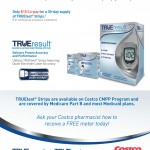
Print out this ad and bring it to your Costco pharmacist for your free meter. Available only at Costco Wholesale Outlets
The post TRUEresult? Blood Glucose Monitoring System appeared first on Spring 2015 Issue | CDiabetes Online Magazine.
]]>
Print out this ad and bring it to your Costco pharmacist for your free meter.
Click here for a PDF of this ad
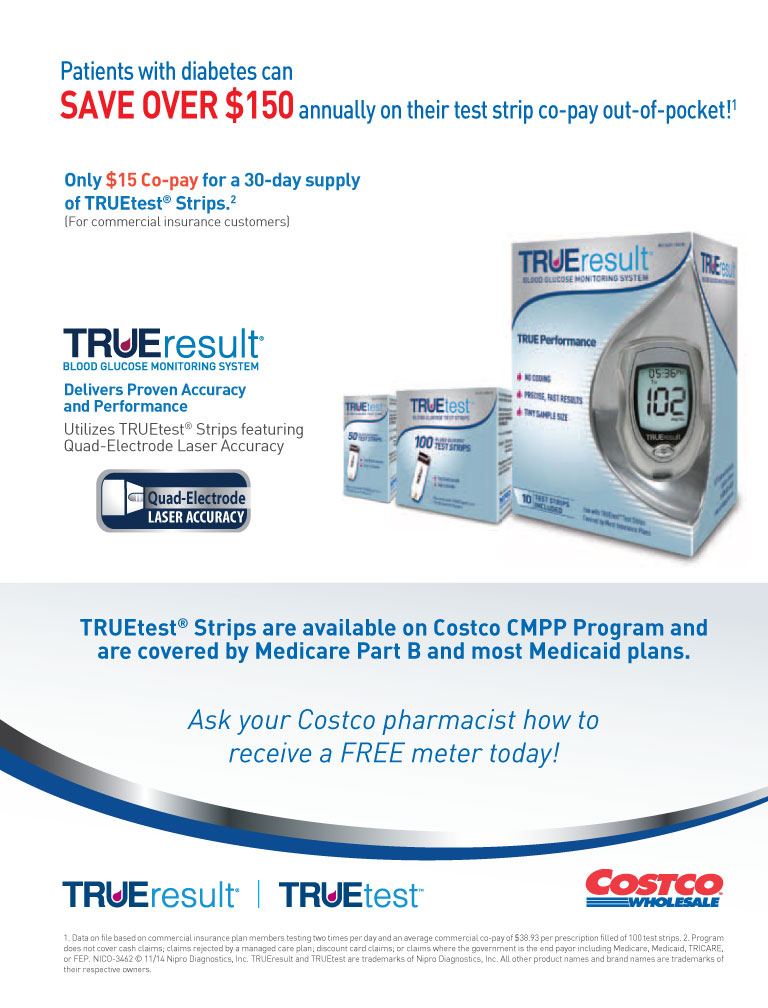
The post TRUEresult? Blood Glucose Monitoring System appeared first on Spring 2015 Issue | CDiabetes Online Magazine.
]]>
HOW COQ10 WORKS CoQ10 helps cells make energy for?the body from the food we eat. Its?job is to make something called?ATP, which is a lot like gas for your?car. But it does more than just help?fuel the body. By Amy Campbell, MS, RD, CDE
The post CoQ10 Explained In Depth appeared first on Spring 2015 Issue | CDiabetes Online Magazine.
]]>
HOW COQ10 WORKS
CoQ10 helps cells make energy for?the body from the food we eat. Its?job is to make something called?ATP, which is a lot like gas for your?car. But it does more than just help?fuel the body.
 Heart disease
Heart disease
 Cancer
Cancer
 Type 2 diabetes
Type 2 diabetes
The amount of CoQ10 in the body?can decrease with age and with?some of the following problems:
 Heart failure
Heart failure
 Diabetes
Diabetes
 Parkinson’s?disease
Parkinson’s?disease
 Gum disease
Gum disease
Studies show that people who?received CoQ10 right after a?heart attack were less likely to?have a second heart attack, and?were less likely to die from heart?disease than those who didn’t?receive CoQ10.
HOW TO GET COQ10
The body makes CoQ10, but it’s?also found in fatty fish (salmon,?tuna, mackerel and sardines),?vegetable oils, meat and poultry.?Small amounts are found in?whole grains, milk, fruits and?vegetables. Most people get?enough CoQ10 through their diet,?but supplements may help some?people who have certain health?problems, like heart failure.
COQ10 SUPPLEMENTS
It’s always a good idea to talk to?your healthcare provider before?you try CoQ10 or any other type?of supplement. Although CoQ10?looks like it may treat or manage?some health conditions, there?isn’t enough research to suggest?that people should take CoQ10?regularly. You and your healthcare?provider should weigh the pros?and cons, consider your ?own?health status and decide if CoQ10?is right for you. Finally, always tell?your healthcare provider about any?dietary supplements you take.
DIABETES A small number of studies?show that CoQ10 may help improve A1C?levels, while other studies show that CoQ10?has no effect on blood glucose control.?CoQ10 may increase the risk for low blood?glucose, so check with your healthcare?provider before you try it as a supplement.
HIGH BLOOD PRESSURE CoQ10 may?help lower both systolic and diastolic (the?top and bottom numbers) blood pressure,?but it can take several weeks to notice any?effect. It shouldn’t be used as a treatment?for high blood pressure, though. Beta?blockers, a type of medicine used to?treat high blood pressure, may deplete?CoQ10 levels.
HEART DISEASE CoQ10 might lower?heart disease risk because it boosts energy?production within heart muscle cells and?prevents blood clots from forming. With?congestive heart failure, the heart becomes?weak and can’t pump blood as well as it?should. Heart failure can cause blood to?build up in some parts of the body, such?as the feet and legs. It can also lead to?shortness of breath. Some studies show?that CoQ10 may help reduce fluid buildup?and improve breathing.
HIGH CHOLESTEROL CoQ10 levels?tend to be lower in people with high?cholesterol. Also, many people with high?cholesterol levels take a medicine called?a statin. Statins work well to lower LDL, or?bad cholesterol, but they may block the?body from making CoQ10. People who are?over the age of 50, have diabetes, have?a history of heart failure and use statins?have a greater risk for lower CoQ10 levels.?CoQ10 may also reduce muscle pain?that can sometimes occur when one is?taking statins.
GUM DISEASE CoQ10 levels tend to be?low in people who have gum disease. In?some studies, the gums of people who took?CoQ10 as a supplement healed faster than?those who did not take it.
By Amy Campbell, MS, RD, CDE
The post CoQ10 Explained In Depth appeared first on Spring 2015 Issue | CDiabetes Online Magazine.
]]>
Available at your local Costco Warehouse.
The post Kirkland Signature? OptiFiber appeared first on Spring 2015 Issue | CDiabetes Online Magazine.
]]>
Available at your local Costco Warehouse.
The post Kirkland Signature? OptiFiber appeared first on Spring 2015 Issue | CDiabetes Online Magazine.
]]>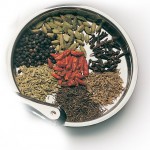
Many people with diabetes have heart disease. What foods, vitamins and supplements can help? Start with fish and fish oils. Oily fish—such as salmon, mackerel, lake trout, herring, sardines and albacore tuna— contain two helpful omega-3 fatty acids: EPA and DHA. Fish oil capsules usually have stronger doses of EPA and DHA. Canned tuna and salmon have the highest levels of omega 3 fats. The American Heart Association (AHA) suggests people with heart disease get 1,000 mg of fi sh oil per day and people with a high triglyceride level get 2,000–4,000 mg. Research shows omega-3 fats can: lower the incidence of an irregular heartbeat, which can lead to sudden death from a heart attack or stroke. lower triglycerides in people whose levels are high. reduce buildup of plaque on artery walls, which slows down the narrowing of the heart’s arteries. prevent blood clots from forming and keep the clots from sticking to artery walls. That helps prevent heart attack and stroke. improve health of arteries. lower blood pressure slightly. enhance the power of medicines called statins, which help improve cholesterol levels. Flaxseed and fl axseed oil also?have omega-3 fatty acids, which?may help reduce triglyceride?levels and improve good?cholesterol (HDL) levels.?Flaxseed oil is available in?liquid and capsule form Many people with diabetes are interested in finding vitamins and minerals that will keep their blood glucose level within target range. Here are a few products that show promise in studies, although more research is needed before all of their effects are known: ALPHA LIPOIC ACID (ALA) ALA is an acid found in the body that helps convert glucose to energy. It is also an antioxidant that may help prevent the damage free radicals may do to the body. A free radical is a molecule that can cause cells to malfunction, which can lead to complications from diabetes, such as kidney damage, eye disease and nerve damage. ALA helps reduce the burning, pain, numbness and tingling of diabetes-related neuropathy (nerve damage). It may also improve insulin sensitivity and blood glucose control in people with type 2 diabetes. It may take a few?weeks to see results. CHROMIUM Chromium is a mineral the body needs to keep blood glucose levels in a healthy range. It may help lower blood glucose levels and improve blood fats in people with type 2 diabetes whose levels are too high. Chromium?picolinate is a form that seems to be absorbed best. Studies show combining chromium picolinate with?biotin is effective. Biotin is a b vitamin that helps break down carbohydrate, fat and protein. CINNAMON Based on early studies, cinnamon was thought to improve type 2 diabetes and high cholesterol levels. However, newer studies show more research must be done to confirm its effectiveness. Many people enjoy adding cinnamon to their food to see if it will make a difference for them. The recommended amount to try is about 1?3 teaspoon. FENUGREEK Several studies show that Fenugreek helps lower blood glucose and bad (LDL) cholesterol levels and raises good (HDL) cholesterol levels in people with diabetes. GARLIC Garlic appears to have antioxidant effects. It also may lower blood glucose by increasing the release of insulin,?lower blood pressure, and improve blood fats. GINSENG (AMERICAN) Studies show that ginseng lowers blood glucose. It appears to do so by slowing the breakdown of carbohydrates in?the body. It may take a few weeks to see benefits. GYMNEMA SYLVESTRE Gymnema was first used in India more than 2,000 years ago to treat diabetes. It may help insulin and other oral diabetes medicines work better but must be studied further. Magnesium The body needs magnesium to break down carbohydrates and improve the way insulin works. Low levels of magnesium?have been linked to higher blood glucose levels and insulin resistance in adults. VITAMIN D Recent studies show vitamin D may help the body make insulin and use it better. A lack of vitamin D has been found in many people with type 2 diabetes, and in some people who already have pre-diabetes. For those who get enough sunlight, 400 IU of vitamin D is recommended. If you cannot go in the sun, you may benefit from 1,000 IU per day. Those who are concerned about osteoporosis should take calcium with vitamin D. ANTIOXIDANTS Vitamins C and E are antioxidants that may lower your heart disease risk by preventing bad (LDL) cholesterol from?producing plaque that narrows arteries. Vitamin E also may help keep your heart healthy. Try to eat a diet high in vitamin E, which is found in green leafy vegetables, nuts and vegetable oils. Vitamin E works better when combined with vitamin C, so try to take these vitamins together. The recom mended daily intake of vitamin C for men over the age of 18 is 90 mg per day, and for women over the age of 18, 75 mg per day. Smoking raises the body’s need for vitamin C. B VITAMINS The AHA suggests that people who are at high risk for, or already have heart disease, should get folate, B6 and B12?into their diets. One way to get these nutrients is to eat a lot of vegetables. Or, take a daily multivitamin and mineral supplement that provides 100 percent of the Recommended Daily Allowance (RDA) for folic acid, B6 and B12. Recent studies suggest vitamin B12 helps the brain think more clearly, and may help prevent age-related decline ?in brain function. NIACIN Niacin is a B vitamin that lowers total cholesterol, LDL (bad) cholesterol and triglyceride levels, while raising HDL (good) cholesterol levels. Niacin supplements should only be taken under the supervision of your physician because of potential side effects such as flushing or hot flashes. The average daily dose of niacin is 1.5–3 grams per day. COENZYME-Q10 Co-Q10 is a natural antioxidant made in the heart, pancreas and kidneys. It helps cells produce energy and keeps?the heart healthy. If a person has already had a heart attack, Co-Q10 can help prevent future heart problems. Some heart medicines, such as statins, interfere with the...
The post Vitamins, Minerals & Glucose Control appeared first on Spring 2015 Issue | CDiabetes Online Magazine.
]]>
Many people with diabetes have heart disease. What foods, vitamins and supplements can help?
Start with fish and fish oils. Oily fish—such as salmon, mackerel, lake trout, herring, sardines and albacore tuna— contain two helpful omega-3 fatty acids: EPA and DHA. Fish oil capsules usually have stronger doses of EPA and DHA.
Canned tuna and salmon have the highest levels of omega 3 fats. The American Heart Association (AHA) suggests people with heart disease get 1,000 mg of fi sh oil per day and people with a high triglyceride level get 2,000–4,000 mg.
Research shows omega-3 fats can:
- lower the incidence of an irregular heartbeat, which can lead to sudden death from a heart attack or stroke.
- lower triglycerides in people whose levels are high.
- reduce buildup of plaque on artery walls, which slows down the narrowing of the heart’s arteries.
- prevent blood clots from forming and keep the clots from sticking to artery walls. That helps prevent heart attack and stroke.
- improve health of arteries.
- lower blood pressure slightly.
- enhance the power of medicines called statins, which help improve cholesterol levels.
Flaxseed and fl axseed oil also?have omega-3 fatty acids, which?may help reduce triglyceride?levels and improve good?cholesterol (HDL) levels.?Flaxseed oil is available in?liquid and capsule form
Many people with diabetes are interested in finding vitamins and minerals that will keep their blood glucose level within target range. Here are a few products that show promise in studies, although more research is needed before all of their effects are known:
ALPHA LIPOIC ACID (ALA)
ALA is an acid found in the body that helps convert glucose to energy. It is also an antioxidant that may help prevent the damage free radicals may do to the body. A free radical is a molecule that can cause cells to malfunction, which can lead to complications from diabetes, such as kidney damage, eye disease and nerve damage.
ALA helps reduce the burning, pain, numbness and tingling of diabetes-related neuropathy (nerve damage). It may
also improve insulin sensitivity and blood glucose control in people with type 2 diabetes. It may take a few?weeks to see results.
CHROMIUM
Chromium is a mineral the body needs to keep blood glucose levels in a healthy range. It may help lower blood
glucose levels and improve blood fats in people with type 2 diabetes whose levels are too high. Chromium?picolinate is a form that seems to be absorbed best. Studies show combining chromium picolinate with?biotin is effective. Biotin is a b vitamin that helps break down carbohydrate, fat and protein.
CINNAMON
Based on early studies, cinnamon was thought to improve type 2 diabetes and high cholesterol levels. However,
newer studies show more research must be done to confirm its effectiveness. Many people enjoy adding cinnamon
to their food to see if it will make a difference for them. The recommended amount to try is about 1?3 teaspoon.
FENUGREEK
Several studies show that Fenugreek helps lower blood glucose and bad (LDL) cholesterol levels and raises good (HDL) cholesterol levels in people with diabetes.
GARLIC
Garlic appears to have antioxidant effects. It also may lower blood glucose by increasing the release of insulin,?lower blood pressure, and improve blood fats.
GINSENG (AMERICAN)
Studies show that ginseng lowers blood glucose. It appears to do so by slowing the breakdown of carbohydrates in?the body. It may take a few weeks to see benefits.
GYMNEMA SYLVESTRE
Gymnema was first used in India more than 2,000 years ago to treat diabetes. It may help insulin and other oral diabetes medicines work better but must be studied further.
Magnesium
The body needs magnesium to break down carbohydrates and improve the way insulin works. Low levels of magnesium?have been linked to higher blood glucose levels and insulin resistance in adults.
VITAMIN D
Recent studies show vitamin D may help the body make insulin and use it better. A lack of vitamin D has been found in many people with type 2 diabetes, and in some people who already have pre-diabetes. For those who get enough sunlight, 400 IU of vitamin D is recommended. If you cannot go in the sun, you may benefit from 1,000 IU per day. Those who are concerned about osteoporosis should take calcium with vitamin D.
ANTIOXIDANTS
Vitamins C and E are antioxidants that may lower your heart disease risk by preventing bad (LDL) cholesterol from?producing plaque that narrows arteries. Vitamin E also may help keep your heart healthy. Try to eat a diet high in vitamin E, which is found in green leafy vegetables, nuts and vegetable oils. Vitamin E works better when combined with vitamin C, so try to take these vitamins together. The recom mended daily intake of vitamin C for men over the age of 18 is 90 mg per day, and for women over the age of 18, 75 mg per day. Smoking raises the body’s need for vitamin C.
B VITAMINS
The AHA suggests that people who are at high risk for, or already have heart disease, should get folate, B6 and B12?into their diets. One way to get these nutrients is to eat a lot of vegetables. Or, take a daily multivitamin and mineral supplement that provides 100 percent of the Recommended Daily Allowance (RDA) for folic acid, B6 and B12. Recent studies suggest vitamin B12 helps the brain think more clearly, and may help prevent age-related decline ?in brain function.
NIACIN
Niacin is a B vitamin that lowers total cholesterol, LDL (bad) cholesterol and triglyceride levels, while raising HDL (good) cholesterol levels. Niacin supplements should only be taken under the supervision of your physician because of potential side effects such as flushing or hot flashes. The average daily dose of niacin is 1.5–3 grams per day.
COENZYME-Q10
Co-Q10 is a natural antioxidant made in the heart, pancreas and kidneys. It helps cells produce energy and keeps?the heart healthy. If a person has already had a heart attack, Co-Q10 can help prevent future heart problems. Some heart medicines, such as statins, interfere with the body’s production of Co-Q10. Heart disease also can lower?the body’s level of that helpful product. The best way to maintain a healthy level of Co-Q10 in your body is to take a supplement. ?The recommended dose for adults is 30–200 mg per day.
PLANT STANOLS AND STEROLS
Plant stanols and sterols are natural substances found in fruits and vegetables. They can help lower bad (LDL) cholesterol by up to 15% and lower the risk of heart disease. They can also work with cholesterol-lowering medications, such as statins, to lower the body’s LDL level. Smaller amounts of these products are also naturally found in corn oil, sunfl ower oil, olive oil, corn, beans, nuts, oranges and apples. Plant stanols and sterols also come in supplement form sometimes called betasitosterol or sitosterol.
Tell your healthcare provider about the dietary supplements you take, or ask about supplements you wish to try. They can warn you about the products that may interact with your other medicines and let you know if you need to ?stop taking any before surgery.
Reviewed by Janis Roszler, RD, CDE, LD/N
The post Vitamins, Minerals & Glucose Control appeared first on Spring 2015 Issue | CDiabetes Online Magazine.
]]>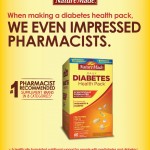
The post Nature Made? Diabetes Health Pack, 60 Packets appeared first on Spring 2015 Issue | CDiabetes Online Magazine.
]]>
The post Nature Made? Diabetes Health Pack, 60 Packets appeared first on Spring 2015 Issue | CDiabetes Online Magazine.
]]>
One of the hardest things?about living with diabetes?is making changes in your?eating and exercise habits.?Knowing the things you?need to do—and even?wanting to do them—may?not always be enough to?make them happen. A recent?study focused on behavior?change may have some keys?that can be helpful in?your life. The study examined?something called the self-determination?theory.?According to that theory,?there are three basic needs?that help us to start and?maintain healthy behaviors: 1. A need for feeling?like we determine?and control our own?behaviors. 2. A need to feel like we are?good at what we do or?are competent. 3. A need to feel?understood and cared?for by others. If people believe those?needs are being met, they are?better able to make changes?and have a greater sense of?well-being, physical health?and mental health. THE NEED FOR CONTROL One of the problems with?making changes to better?manage diabetes is that you?may often feel as though?these changes are decided?by others. Healthcare?providers—and even friends?and family members—have?a lot of advice about what?you should eat, how often?you should check your?blood glucose or what type?of medication you should?take. It can feel like there are?a lot of shoulds in diabetes. The first step in making a?change is to decide what is?important to you and how?changing your behavior?will make it better or solve?a problem in your life.?Remember that this is your?diabetes, not someone else’s. Rating the importance to?you on a scale of 1 to 10,?with 1 being unimportant?and 10 being very important,?is a good way to understand?your feelings and choose?a first step. Starting with?what is most important?to you will increase your?chances of being successful. BELIEVE YOU CAN DO IT The study also found that?the most important factor?for success in changing?behavior is the belief that?you can succeed. If you don’t?think you can do it, it’s easier?to give up when things don’t?go so well. It’s much harder?to find the motivation to?stick with a behavior over?the long-term if you don’t?believe in yourself. Rating?your confidence on a scale?of 1 to 10 is a good way?to figure out how sure of?yourself you are. If you?cannot rate yourself at least?a 7, try to figure out what?you can do to raise your?confidence level. Rather than starting?with changing your diet or?exercise, you will be more?successful if you start by?making a plan to build up?your belief in yourself. You?may also decide that it’s?not the right time to focus?on a certain behavior. For?example, if you’re finding?it too hard to stop eating?potato chips as a snack,?choose another behavior?that might be easier to work?on (and that you feel?confident that you can?do), like going for a walk?after dinner every night. FEELING UNDERSTOOD The third factor is to feel?that others care about you.?Your family, friends and?other people with diabetes?can help you ?feel supported?as you manage diabetes?and make changes in your?lifestyle. It is also important?that your healthcare team?respects your right to make?your own choices, helps?you feel more confident and?cares about you and your?health. Finding support is?important, especially as you?begin to make changes to?your eating plan or level of?physical activity. There is no magic trick?to making changes in your?lifestyle to manage your?diabetes better and to?improve your health. The?keys to being successful?are to choose what is?important to you, to believe in yourself and to?get the support you need. By Martha Funnell, MS, RN, CDE
The post Take Control appeared first on Spring 2015 Issue | CDiabetes Online Magazine.
]]>
One of the hardest things?about living with diabetes?is making changes in your?eating and exercise habits.?Knowing the things you?need to do—and even?wanting to do them—may?not always be enough to?make them happen. A recent?study focused on behavior?change may have some keys?that can be helpful in?your life.
The study examined?something called the self-determination?theory.?According to that theory,?there are three basic needs?that help us to start and?maintain healthy behaviors:
1. A need for feeling?like we determine?and control our own?behaviors.
2. A need to feel like we are?good at what we do or?are competent.
3. A need to feel?understood and cared?for by others.
If people believe those?needs are being met, they are?better able to make changes?and have a greater sense of?well-being, physical health?and mental health.
THE NEED FOR CONTROL
One of the problems with?making changes to better?manage diabetes is that you?may often feel as though?these changes are decided?by others. Healthcare?providers—and even friends?and family members—have?a lot of advice about what?you should eat, how often?you should check your?blood glucose or what type?of medication you should?take. It can feel like there are?a lot of shoulds in diabetes.
The first step in making a?change is to decide what is?important to you and how?changing your behavior?will make it better or solve?a problem in your life.?Remember that this is your?diabetes, not someone else’s.
Rating the importance to?you on a scale of 1 to 10,?with 1 being unimportant?and 10 being very important,?is a good way to understand?your feelings and choose?a first step. Starting with?what is most important?to you will increase your?chances of being successful.
BELIEVE YOU CAN DO IT
The study also found that?the most important factor?for success in changing?behavior is the belief that?you can succeed. If you don’t?think you can do it, it’s easier?to give up when things don’t?go so well. It’s much harder?to find the motivation to?stick with a behavior over?the long-term if you don’t?believe in yourself. Rating?your confidence on a scale?of 1 to 10 is a good way?to figure out how sure of?yourself you are. If you?cannot rate yourself at least?a 7, try to figure out what?you can do to raise your?confidence level.
Rather than starting?with changing your diet or?exercise, you will be more?successful if you start by?making a plan to build up?your belief in yourself. You?may also decide that it’s?not the right time to focus?on a certain behavior. For?example, if you’re finding?it too hard to stop eating?potato chips as a snack,?choose another behavior?that might be easier to work?on (and that you feel?confident that you can?do), like going for a walk?after dinner every night.
FEELING UNDERSTOOD
The third factor is to feel?that others care about you.?Your family, friends and?other people with diabetes?can help you ?feel supported?as you manage diabetes?and make changes in your?lifestyle. It is also important?that your healthcare team?respects your right to make?your own choices, helps?you feel more confident and?cares about you and your?health. Finding support is?important, especially as you?begin to make changes to?your eating plan or level of?physical activity.
There is no magic trick?to making changes in your?lifestyle to manage your?diabetes better and to?improve your health. The?keys to being successful?are to choose what is?important to you, to believe in yourself and to?get the support you need.
By Martha Funnell, MS, RN, CDE
The post Take Control appeared first on Spring 2015 Issue | CDiabetes Online Magazine.
]]>
Available at your local Costco warehouse. Not available for purchase on Costco.com
The post Bayer CONTOUR? NEXT Blood Glucose Monitoring System appeared first on Spring 2015 Issue | CDiabetes Online Magazine.
]]>
Available at your local Costco warehouse.
Not available for purchase on Costco.com
The post Bayer CONTOUR? NEXT Blood Glucose Monitoring System appeared first on Spring 2015 Issue | CDiabetes Online Magazine.
]]>
Robbie Almeida, a Costco pharmacist in Ann Arbor, Michigan, finally?quit smoking?after 15 years of advising her customers to do the same. This is how she did it. As a pharmacist, Robbie knew about the health benefits of vitamins and other supplements. She also knew that certain vitamins and supplements would help her?quit smoking. “I take a multivitamin. I take triglycerides. I take flaxseed oil, probiotics and CoQ10. And I take a calcium pill.” Robbie tells her customers at Costco pharmacy that wanting to?quit?is the first big step. For Robbie, once she made that decision, the rest followed easily. “Honestly, I just did it cold turkey. I remember I had my last cigarette at my friend’s house, and I was done. I stayed away from smoking areas so I wasn’t tempted or craving or anything like that. I wanted to?quit, so that’s how I did it. Now if I smell cigarette smoke it makes me ill. I don’t like it at all, and I think, ‘Oh, that was really gross.’ How could I have been doing that for so long?” Most people won’t be able to?quit?cold turkey like Robbie, but making that decision is an important first step. Even when she was smoking, Robbie knew that she was harming her health. Like so many people, she started smoking as a teenager. She thought “everyone” was doing it, and it seemed so cool. Then, as a pharmacist, she had to talk to her customers about the risks of smoking and advise them to?quit. It was hard to hear that smoking raises your risk of heart disease and diabetes almost every day. “The health benefits of it all–how does it make sense to put something foreign into our systems? My kids are nine and eight. They don’t remember when I was still a smoker; it’s been over 10 years. But I tell them about it so that they won’t start like I did. I tell them that it doesn’t make any sense. You’re putting something in your body that doesn’t belong there. “There’s disease. There’s pre-mature death. And the sooner you?quit, the sooner your lungs can start to recover. Back when I was smoking, I had pleurisy in my lungs, like there was an infection in the lining. Right now I feel that my lungs are probably close to 100% healthy.” Robbie?quit?soon after finishing pharmacy school. She admits that she smoked through school because of the stress. But learning about lung cancer, heart disease, strokes–she realized that it was time. She also saw what it was doing to her patients. “We measure patients’ lung capacity, and every year or so and I have to talk to the smokers about the benefits of?stopping.?You can tell right away when they blow into the tube and they can’t breathe that they have had decades of smoking. It’s really bad. And then of course they have to rely on drugs, like inhalers, and everything else that goes along with smoking-related diseases, and all that is very costly. So, it doesn’t make any sense. “I’ve had patients come to me with nicotine gum and ask me whether it works or not. I tell them that they have to be willing to quit, because if they’re not, nothing will really work. I haven’t been monitoring exactly how many patches or over-the-counter products people are buying now thanks to their New Year’s resolutions, but more people are coming to the pharmacy and talking to me about?quitting. “I believe in determination. In my mind I was done smoking, so that’s why I was able toquit. It’s up to each individual to realize the benefits of?quitting?and to decide how to do it. A lot of people use the gum or the patch. That’s fine. With the gum, heavy smokers can start off with a higher dosage to decrease the craving, and then gradually decrease the dose as they start smoking less. They taper down until they get to the lower dose and then, hopefully, the cravings won’t be there and they will have?quit.” Family history also plays a role. Robbie’s father smoked until she was born. Like Robbie, he?stopped?before his children saw him smoking. But Robbie’s grandfather smoked and great grandmother also smoked. Robbie’s grandfather died of complications from smoking; most likely, it aggravated his heart disease. Robbie has been taking calcium ever since she finished school to avoid osteoporosis. She wants to keep strong bones so that she’ll be healthy for his children “A lot of older smokers don’t think like that. They are pretty much addicted and they can’t stop. My children are always on my mind. I have to be healthy for them, so everything that I’m doing is so that I can be with them longer.” By?Jonathan Jarashow
The post Quitting Smoking: A Costco pharmacist’s story appeared first on Spring 2015 Issue | CDiabetes Online Magazine.
]]>
 Robbie Almeida, a Costco pharmacist in Ann Arbor, Michigan, finally?quit smoking?after 15 years of advising her customers to do the same. This is how she did it.
Robbie Almeida, a Costco pharmacist in Ann Arbor, Michigan, finally?quit smoking?after 15 years of advising her customers to do the same. This is how she did it.
As a pharmacist, Robbie knew about the health benefits of vitamins and other supplements. She also knew that certain vitamins and supplements would help her?quit smoking.
“I take a multivitamin. I take triglycerides. I take flaxseed oil, probiotics and CoQ10. And I take a calcium pill.”
Robbie tells her customers at Costco pharmacy that wanting to?quit?is the first big step. For Robbie, once she made that decision, the rest followed easily.
“Honestly, I just did it cold turkey. I remember I had my last cigarette at my friend’s house, and I was done. I stayed away from smoking areas so I wasn’t tempted or craving or anything like that. I wanted to?quit, so that’s how I did it. Now if I smell cigarette smoke it makes me ill. I don’t like it at all, and I think, ‘Oh, that was really gross.’ How could I have been doing that for so long?”
Most people won’t be able to?quit?cold turkey like Robbie, but making that decision is an important first step.
Even when she was smoking, Robbie knew that she was harming her health. Like so many people, she started smoking as a teenager. She thought “everyone” was doing it, and it seemed so cool. Then, as a pharmacist, she had to talk to her customers about the risks of smoking and advise them to?quit. It was hard to hear that smoking raises your risk of heart disease and diabetes almost every day.
“The health benefits of it all–how does it make sense to put something foreign into our systems? My kids are nine and eight. They don’t remember when I was still a smoker; it’s been over 10 years. But I tell them about it so that they won’t start like I did. I tell them that it doesn’t make any sense. You’re putting something in your body that doesn’t belong there.
“There’s disease. There’s pre-mature death. And the sooner you?quit, the sooner your lungs can start to recover. Back when I was smoking, I had pleurisy in my lungs, like there was an infection in the lining. Right now I feel that my lungs are probably close to 100% healthy.”
Robbie?quit?soon after finishing pharmacy school. She admits that she smoked through school because of the stress. But learning about lung cancer, heart disease, strokes–she realized that it was time. She also saw what it was doing to her patients.
“We measure patients’ lung capacity, and every year or so and I have to talk to the smokers about the benefits of?stopping.?You can tell right away when they blow into the tube and they can’t breathe that they have had decades of smoking. It’s really bad. And then of course they have to rely on drugs, like inhalers, and everything else that goes along with smoking-related diseases, and all that is very costly. So, it doesn’t make any sense.
“I’ve had patients come to me with nicotine gum and ask me whether it works or not. I tell them that they have to be willing to quit, because if they’re not, nothing will really work. I haven’t been monitoring exactly how many patches or over-the-counter products people are buying now thanks to their New Year’s resolutions, but more people are coming to the pharmacy and talking to me about?quitting.
“I believe in determination. In my mind I was done smoking, so that’s why I was able toquit. It’s up to each individual to realize the benefits of?quitting?and to decide how to do it. A lot of people use the gum or the patch. That’s fine. With the gum, heavy smokers can start off with a higher dosage to decrease the craving, and then gradually decrease the dose as they start smoking less. They taper down until they get to the lower dose and then, hopefully, the cravings won’t be there and they will have?quit.”
Family history also plays a role. Robbie’s father smoked until she was born. Like Robbie, he?stopped?before his children saw him smoking. But Robbie’s grandfather smoked and great grandmother also smoked. Robbie’s grandfather died of complications from smoking; most likely, it aggravated his heart disease. Robbie has been taking calcium ever since she finished school to avoid osteoporosis. She wants to keep strong bones so that she’ll be healthy for his children
“A lot of older smokers don’t think like that. They are pretty much addicted and they can’t stop. My children are always on my mind. I have to be healthy for them, so everything that I’m doing is so that I can be with them longer.”
By?Jonathan Jarashow
The post Quitting Smoking: A Costco pharmacist’s story appeared first on Spring 2015 Issue | CDiabetes Online Magazine.
]]>
Our body needs many?kinds of foods to keep?it strong and healthy.?Do you know what?your body gets from?the foods you eat??How can you find out??The front of the food?package may look very?nice, but is that food?good for you? To find out, look?on the side or the?back of the package,?where you will see a?Nutrition Facts label.?There is a lot you?can learn from the?information there.?Here is a guide to?what you should?look for. 1 Serving size. This number?will be at the top?of the label. It tells?you what your body?gets if you eat that?amount of food. For?example, if you buy?a can of tomato soup?you may see that the?serving size is 1 cup. All of the numbers?found on the label?are for 1 cup of the?soup. Let’s say there?are 100 calories in 1?cup of tomato soup.?But what if you eat?two cups? There will?be 200 calories in 2?cups of tomato soup. 2 Servings per?container. This number?is right below the?serving size. It tells?you how many?portions are inside?the package. For?example, there may?be one, two or maybe?more servings per?container. This helps?you decide how?much of the food?to eat. THE BEST WAY TO READ A FOOD LABEL IS TO: ? Look for a short list of ingredients. ? Know your serving size (portion). ? Pick the package with less fat,?cholesterol, sugar and sodium. ? Pick the package with more fiber,?vitamins A and C, calcium and iron. 3 Calories, total?fat, cholesterol,?sodium,?potassium, total?carbohydrates,?protein, vitamin A,?vitamin C, calcium?and iron. If you eat one serving?of the food, your?body will get the?exact amounts listed.?This information?is important if you?want to control your?blood glucose, lose?weight or eat less fat?or sodium. If you?have a choice of two?kinds of tomato?soup, you may prefer?to pick the one that?has less sodium or?sugar, or more iron?or vitamin A. 4 The list of?ingredients. This tells?you the foods and?chemicals that are?inside the item.?The order in which?they are listed is?important, too.?The item found?in the biggest amount is listed?first. The last food is in the smallest?amount. Natural,?unrefined foods?have a very short?list. For example, old?fashioned oats has?just one ingredient:?100% natural rolled?oats. Natural peanut?butter with no salt?added only contains?peanuts. These foods?are very good for?your body. Refined?foods have a long list?of ingredients with?names that are hard?to say. These foods?may give your body?many calories and?very little that is good?for your health. — The more you read?food labels, the?easier it will be for?you to make the?best food choices. — By Johanna Burani, MS, RD, CDE
The post It Pays To Read Labels appeared first on Spring 2015 Issue | CDiabetes Online Magazine.
]]>
Our body needs many?kinds of foods to keep?it strong and healthy.?Do you know what?your body gets from?the foods you eat??How can you find out??The front of the food?package may look very?nice, but is that food?good for you?
To find out, look?on the side or the?back of the package,?where you will see a?Nutrition Facts label.?There is a lot you?can learn from the?information there.?Here is a guide to?what you should?look for.
1 Serving size.
This number?will be at the top?of the label. It tells?you what your body?gets if you eat that?amount of food. For?example, if you buy?a can of tomato soup?you may see that the?serving size is 1 cup.
All of the numbers?found on the label?are for 1 cup of the?soup. Let’s say there?are 100 calories in 1?cup of tomato soup.?But what if you eat?two cups? There will?be 200 calories in 2?cups of tomato soup.
2 Servings per?container.
This number?is right below the?serving size. It tells?you how many?portions are inside?the package. For?example, there may?be one, two or maybe?more servings per?container. This helps?you decide how?much of the food?to eat.
THE BEST WAY TO READ A FOOD LABEL IS TO:
? Look for a short list of ingredients.
? Know your serving size (portion).
? Pick the package with less fat,?cholesterol, sugar and sodium.
? Pick the package with more fiber,?vitamins A and C, calcium and iron.
3 Calories, total?fat, cholesterol,?sodium,?potassium, total?carbohydrates,?protein, vitamin A,?vitamin C, calcium?and iron.
If you eat one serving?of the food, your?body will get the?exact amounts listed.?This information?is important if you?want to control your?blood glucose, lose?weight or eat less fat?or sodium. If you?have a choice of two?kinds of tomato?soup, you may prefer?to pick the one that?has less sodium or?sugar, or more iron?or vitamin A.
4 The list of?ingredients.
This tells?you the foods and?chemicals that are?inside the item.?The order in which?they are listed is?important, too.?The item found?in the biggest amount is listed?first. The last food is in the smallest?amount. Natural,?unrefined foods?have a very short?list. For example, old?fashioned oats has?just one ingredient:?100% natural rolled?oats. Natural peanut?butter with no salt?added only contains?peanuts. These foods?are very good for?your body. Refined?foods have a long list?of ingredients with?names that are hard?to say. These foods?may give your body?many calories and?very little that is good?for your health.
—
The more you read?food labels, the?easier it will be for?you to make the?best food choices.
—
By Johanna Burani, MS, RD, CDE
The post It Pays To Read Labels appeared first on Spring 2015 Issue | CDiabetes Online Magazine.
]]>
The post Kirkland Signature? Quit2? 2 mg. Gum appeared first on Spring 2015 Issue | CDiabetes Online Magazine.
]]>
The post Kirkland Signature? Quit2? 2 mg. Gum appeared first on Spring 2015 Issue | CDiabetes Online Magazine.
]]>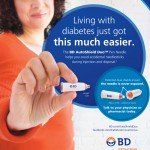
Learn more about BD AutoShield Duo? Pen Needles from http://BD.com.
The post BD AutoShield Duo? Pen Needle appeared first on Spring 2015 Issue | CDiabetes Online Magazine.
]]>
Learn more about BD AutoShield Duo Pen Needles from http://BD.com.
Pen Needles from http://BD.com.
The post BD AutoShield Duo? Pen Needle appeared first on Spring 2015 Issue | CDiabetes Online Magazine.
]]>
Many people with diabetes do not want to start insulin or other injected diabetes medications because they have many fears. Some people fear needles, injection pain or worry about taking a shot. Some people have concerns about the safety or convenience of diabetes injections. Some people even fear that starting injected medications is the “end of the road”. Your community pharmacist can answer your questions about injected diabetes medications and can help you make the right choices to help you achieve your blood glucose goals. We have made great strides in treating diabetes over the last decade. One of the big changes is that insulin and other injectable medications are being prescribed more often and much earlier to improve health. They work very well to manage blood glucose, but they do require an injection. Luckily, most of these medications are now available in pen devices and some manufacturers are continuing to introduce newer, innovative pen needles. The BD AutoShield Duo? Pen Needle is a pen needle for patients who inject diabetes medications at home that may appeal to people who have fears or concerns about injecting themselves. This pen needle has been used by healthcare professionals in hospitals for years. The BD AutoShield Duo? Pen Needle has shields on both the front and back of the needle which help avoid accidental needle sticks before and after injecting. The shields also may help make the injection process easier for patients that are anxious about injections because the needle is concealed during the entire process. The BD AutoShield Duo? Pen Needle is also shorter and thinner than many older needles. Some people have been told that they should use longer needles because they are heavy or have thicker skin. But, the latest research shows that new, shorter needles are just as effective as longer needles used in the past and can be used in almost everyone, regardless of sex, weight, or skin thickness1. This is important because longer needles tend to be more painful. And, more importantly, longer needles can accidentally enter into muscle which can lead to lots of changes in blood sugar levels and may increase pain. Shorter needles are safer and less painful because they enter into the fat tissue right under the skin. The BD AutoShield Duo? Pen Needle also offers some conveniences. It is easier to handle than standard pen needles which may benefit people with arthritis or reduced dexterity. The short needle length means that you can inject without pinching up your skin,*2 there’s no inner needle shield to remove and the needle does not need to be re-capped to be removed from the pen. This means two less steps in the injection process! If your doctor recommends insulin or another injectable medication for you, ask your pharmacist about the BD AutoShield Duo? Pen Needle. It fits on all leading diabetes pen devices in the U.S. and is covered by most insurance plans. #¥Your pharmacist can help you decide whether it is the right pen needle for you. # Compatible with all leading insulin and GLP-1 pens in the US as of May 2014, ISO-compliant. ¥ Co-pays and preferred status vary by plan. * Patients ages 2-6, those who are extremely lean or with loose skin may require a pinch-up. If using pinch-up: Do not place fingers less than 1 inch (2.5cm) apart. Do not insert the penneedle at an angle towards your fingers. 1. Hirsch et al. Comparative glycemic control, safety and patient ratings. 2.Frid, et al. Diabetes and Metabolism, 2010 Jennifer Trujillo, PharmD, BCPS, CDE | Associate Professor This article is brought to you by?
The post A Diabetes Pen Needle That Helps Avoid Accidental Needle Sticks appeared first on Spring 2015 Issue | CDiabetes Online Magazine.
]]>
Many people with diabetes do not want to start insulin or other injected diabetes medications because they have many fears. Some people fear needles, injection pain or worry about taking a shot. Some people have concerns about the safety or convenience of diabetes injections. Some people even fear that starting injected medications is the “end of the road”. Your community pharmacist can answer your questions about injected diabetes medications and can help you make the right choices to help you achieve your blood glucose goals.
We have made great strides in treating diabetes over the last decade. One of the big changes is that insulin and other injectable medications are being prescribed more often and much earlier to improve health. They work very well to manage blood glucose, but they do require an injection. Luckily, most of these medications are now available in pen devices and some manufacturers are continuing to introduce newer, innovative pen needles.
 The BD AutoShield Duo
The BD AutoShield Duo Pen Needle is a pen needle for patients who inject diabetes medications at home that may
Pen Needle is a pen needle for patients who inject diabetes medications at home that may
appeal to people who have fears or concerns about injecting themselves. This pen needle has been used by healthcare
professionals in hospitals for years. The BD AutoShield Duo Pen Needle has shields on both the front and back of the needle which help avoid accidental needle sticks before and after injecting. The shields also may help make the injection process easier for patients that are anxious about injections because the needle is concealed during the entire process.
Pen Needle has shields on both the front and back of the needle which help avoid accidental needle sticks before and after injecting. The shields also may help make the injection process easier for patients that are anxious about injections because the needle is concealed during the entire process.
The BD AutoShield Duo Pen Needle is also shorter and thinner than many older needles. Some people have been told that they should use longer needles because they are heavy or have thicker skin. But, the latest research shows that new, shorter needles are just as effective as longer needles used in the past and can be used in almost everyone, regardless of sex, weight, or skin thickness1. This is important because longer needles tend to be more painful. And, more importantly, longer needles can accidentally enter into muscle which can lead to lots of changes
Pen Needle is also shorter and thinner than many older needles. Some people have been told that they should use longer needles because they are heavy or have thicker skin. But, the latest research shows that new, shorter needles are just as effective as longer needles used in the past and can be used in almost everyone, regardless of sex, weight, or skin thickness1. This is important because longer needles tend to be more painful. And, more importantly, longer needles can accidentally enter into muscle which can lead to lots of changes
in blood sugar levels and may increase pain. Shorter needles are safer and less painful because they enter into the fat tissue right under the skin.
The BD AutoShield Duo Pen Needle also offers some conveniences. It is easier to handle than standard pen needles
Pen Needle also offers some conveniences. It is easier to handle than standard pen needles
which may benefit people with arthritis or reduced dexterity. The short needle length means that you can inject without pinching up your skin,*2 there’s no inner needle shield to remove and the needle does not need to be re-capped to be removed from the pen. This means two less steps in the injection process!
If your doctor recommends insulin or another injectable medication for you, ask your pharmacist about the BD AutoShield Duo Pen Needle. It fits on all leading diabetes pen devices in the U.S. and is covered by most insurance plans. #¥Your pharmacist can help you decide whether it is the right pen needle for you.
Pen Needle. It fits on all leading diabetes pen devices in the U.S. and is covered by most insurance plans. #¥Your pharmacist can help you decide whether it is the right pen needle for you.
# Compatible with all leading insulin and GLP-1 pens in the US as of May 2014, ISO-compliant.
¥ Co-pays and preferred status vary by plan.
* Patients ages 2-6, those who are extremely lean or with loose skin may require a pinch-up.
If using pinch-up: Do not place fingers less than 1 inch (2.5cm) apart. Do not insert the penneedle at
an angle towards your fingers.
1. Hirsch et al. Comparative glycemic control, safety and patient ratings.
2.Frid, et al. Diabetes and Metabolism, 2010
Jennifer Trujillo, PharmD, BCPS, CDE | Associate Professor
This article is brought to you by?![]()
The post A Diabetes Pen Needle That Helps Avoid Accidental Needle Sticks appeared first on Spring 2015 Issue | CDiabetes Online Magazine.
]]>
The post Nature Made? Vitamins appeared first on Spring 2015 Issue | CDiabetes Online Magazine.
]]>
The post Nature Made? Vitamins appeared first on Spring 2015 Issue | CDiabetes Online Magazine.
]]>
AS A COSTCO SHOPPER, you most likely have come across container after container of meal and snack replacement options.? From shakes to bars, these products can be marketed to do everything from help you to build muscle, lose weight, and even better control your blood glucose levels. But do they really do what they claim? Are meal replacements such as these products necessary for those with diabetes? Let’s take a closer look. What are meal replacements? Meal replacements are liquid shakes or bars that are eaten alone or in combination with foods such as fresh fruit and vegetables to replace a standard breakfast, lunch, or dinner. Meal replacements typically contain a high percentage of protein along with carbohydrates and fats to replicate the nutrients that would be found in a meal. These products are also typically fortified with vitamins and minerals. The calorie content and nutrient profile of the replacement determine whether it should be used as a meal, a snack, or as part of a meal with fruits and vegetables added. For instance, a shake with only 100 calories would not be substantial enough alone to be counted as a meal. However, this shake could make a light snack or it may be paired with a garden salad and fresh fruit for an easy meal option. To help you determine in a product is appropriate for a meal or a snack, use the following guidelines: For a supplement with 140 calories or less, use as a snack or pair with a garden salad and fresh fruit as a light meal For supplements from 150-250 calories, these can be used alone as a meal or paired with an added vegetable or fruit. ?What are the benefits of meal replacements? Meal replacement bars and shakes offer many benefits. If you are on the run and do not have time to prepare a healthy meal, these products offer you a quick and balanced option. ?For instance, if you are driving and your only option for a quick meal is a fried sandwich or a donut, a meal replacement would provide you with a nutrient rich option that is low to moderate in calories with limited saturated fat and refined carbohydrates. Meal replacements are also a great option for those looking to lose weight. These meals and snacks are portion controlled and reduced in calories, making them a great way to curb your appetite while still having a calorie deficit during the day. For those with diabetes, meal replacement bars or shakes can be a great option when you are tight on time, but need to be sure to eat. Going too long between meals or skipping meals can lead to episodes of low blood sugar. Keeping a meal replacement bar or shake with you can help to prevent you from skipping a meal or having to grab an unhealthy food choice that may spike blood glucose levels. If you have poorly controlled diabetes, a meal supplement can also be a valuable tool. Replacing one of your typical meals with a supplement made for those with diabetes can help you to improve post-meal blood glucose levels. This can then help you to gain better control of your blood glucose levels throughout the whole day. What should you look for when choosing a meal replacement? If you have diabetes, you need to be careful when selecting a meal replacement. Some meal replacements can be high in added sugars, which may spike blood glucose. Products such as Glucerna have been developed specifically to meet the needs of individuals with diabetes. Glucerna uses slow digested carbohydrates to help minimize blood sugar spikes. If you have been having trouble controlling your blood sugar, replacing one meal per day with a product such as Glucerna may help you to gain better control over your blood glucose levels. In addition, using a calorie controlled shake or bar may also help to promote weight loss, which in turn can improve blood glucose control. Before supplementing with any meal replacement, make sure to consult your healthcare provider. It is important to determine if a supplement is right for you and your individual health needs. By Erin Palinski-Wade, RD, LDN, CDE
The post Are Meal Replacement Shakes Essential For Diabetes Control? appeared first on Spring 2015 Issue | CDiabetes Online Magazine.
]]>
AS A COSTCO SHOPPER, you most likely have come across container after container of meal and snack replacement options.? From shakes to bars, these products can be marketed to do everything from help you to build muscle, lose weight, and even better control your blood glucose levels. But do they really do what they claim? Are meal replacements such as these products necessary for those with diabetes? Let’s take a closer look.
What are meal replacements?
Meal replacements are liquid shakes or bars that are eaten alone or in combination with foods such as fresh fruit and vegetables to replace a standard breakfast, lunch, or dinner. Meal replacements typically contain a high percentage of protein along with carbohydrates and fats to replicate the nutrients that would be found in a meal. These products are also typically fortified with vitamins and minerals.
The calorie content and nutrient profile of the replacement determine whether it should be used as a meal, a snack, or as part of a meal with fruits and vegetables added. For instance, a shake with only 100 calories would not be substantial enough alone to be counted as a meal. However, this shake could make a light snack or it may be paired with a garden salad and fresh fruit for an easy meal option.
To help you determine in a product is appropriate for a meal or a snack, use the following guidelines:
- For a supplement with 140 calories or less, use as a snack or pair with a garden salad and fresh fruit as a light meal
- For supplements from 150-250 calories, these can be used alone as a meal or paired with an added vegetable or fruit.
?What are the benefits of meal replacements?
Meal replacement bars and shakes offer many benefits. If you are on the run and do not have time to prepare a healthy meal, these products offer you a quick and balanced option. ?For instance, if you are driving and your only option for a quick meal is a fried sandwich or a donut, a meal replacement would provide you with a nutrient rich option that is low to moderate in calories with limited saturated fat and refined carbohydrates. Meal replacements are also a great option for those looking to lose weight. These meals and snacks are portion controlled and reduced in calories, making them a great way to curb your appetite while still having a calorie deficit during the day.
For those with diabetes, meal replacement bars or shakes can be a great option when you are tight on time, but need to be sure to eat. Going too long between meals or skipping meals can lead to episodes of low blood sugar. Keeping a meal replacement bar or shake with you can help to prevent you from skipping a meal or having to grab an unhealthy food choice that may spike blood glucose levels.
If you have poorly controlled diabetes, a meal supplement can also be a valuable tool. Replacing one of your typical meals with a supplement made for those with diabetes can help you to improve post-meal blood glucose levels. This can then help you to gain better control of your blood glucose levels throughout the whole day.
What should you look for when choosing a meal replacement?
If you have diabetes, you need to be careful when selecting a meal replacement. Some meal replacements can be high in added sugars, which may spike blood glucose. Products such as Glucerna have been developed specifically to meet the needs of individuals with diabetes. Glucerna uses slow digested carbohydrates to help minimize blood sugar spikes. If you have been having trouble controlling your blood sugar, replacing one meal per day with a product such as Glucerna may help you to gain better control over your blood glucose levels. In addition, using a calorie controlled shake or bar may also help to promote weight loss, which in turn can improve blood glucose control.
Before supplementing with any meal replacement, make sure to consult your healthcare provider. It is important to determine if a supplement is right for you and your individual health needs.
By Erin Palinski-Wade, RD, LDN, CDE
The post Are Meal Replacement Shakes Essential For Diabetes Control? appeared first on Spring 2015 Issue | CDiabetes Online Magazine.
]]>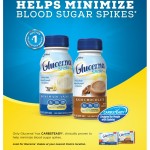
The post GLUCERNA? Vanilla Shake appeared first on Spring 2015 Issue | CDiabetes Online Magazine.
]]>
The post GLUCERNA? Vanilla Shake appeared first on Spring 2015 Issue | CDiabetes Online Magazine.
]]>
We know that people with diabetes have about twice the rate of clinical depression as those without diabetes. And depression seems to hit people with diabetes with a double-whammy. They miss more days from work and report a much poorer sense of everyday well-being and health than people with either depression alone or diabetes alone. The fear of getting diabetes complications, or living with them once they appear, increases the risk for depression. The anger or guilt related to complications can cause a person to become depressed if he or she does not express these feelings or learn to cope with them. If you believe you may be depressed, a good place to begin your search for a mental health worker is to talk with your diabetes healthcare team. Ask if they know someone who works with people who have diabetes and understands the issues you face. You also need to check with your health insurance company to see if there are any therapists in your network. Choosing A Mental Health Professional The first step is to choose a?mental health professional.?You can see a social worker,?psychologist or a psychiatrist.?Social workers talk with people and?their families about their emotional or?physical needs and help find financial?and other support services.?Psychologists have a doctoral?degree in psychology. to achieve?this, they spend about 6 to 10 years?studying how people think, feel and?behave. their training usually is?in clinical psychology, counseling?psychology or educational psychology.?Psychiatrists are medical doctors?who specialize in mental health and?mental illness. they offer counseling?and can use medication to help their?patients manage their mental illnesses. Before You Go think about your goals for therapy.?Decide what you hope to gain from?your visits. you may find it helpful to interview?several mental health specialists?before you choose one. In order for?them to help you, you need to feel at?ease and be able to relate to them?and their style. 6 Questions To Ask Are you licensed in this state? What insurances do you accept? Do you prescribe medicines as part?of treatment? Do you work with people?who have diabetes? What should I do to prepare?for my first visit? What style or method of?therapy do you use? By Martha Funnell, MS, RN, CDE
The post Tips To Help Defeat Depression appeared first on Spring 2015 Issue | CDiabetes Online Magazine.
]]>
We know that people with diabetes have about twice the rate of clinical depression as those without diabetes. And depression seems to hit people with diabetes with a double-whammy. They miss more days from work and report a much poorer sense of everyday well-being and health than people with either depression alone or diabetes alone. The fear of getting diabetes complications, or living with them once they appear, increases the risk for depression. The anger or guilt related to complications can cause a person to become depressed if he or she does not express these feelings or learn to cope with them. If you believe you may be depressed, a good place to begin your search for a mental health worker is to talk with your diabetes healthcare team. Ask if they know someone who works with people who have diabetes and understands the issues you face. You also need to check with your health insurance company to see if there are any therapists in your network.
Choosing A Mental Health Professional
The first step is to choose a?mental health professional.?You can see a social worker,?psychologist or a psychiatrist.?Social workers talk with people and?their families about their emotional or?physical needs and help find financial?and other support services.?Psychologists have a doctoral?degree in psychology. to achieve?this, they spend about 6 to 10 years?studying how people think, feel and?behave. their training usually is?in clinical psychology, counseling?psychology or educational psychology.?Psychiatrists are medical doctors?who specialize in mental health and?mental illness. they offer counseling?and can use medication to help their?patients manage their mental illnesses.
Before You Go
think about your goals for therapy.?Decide what you hope to gain from?your visits. you may find it helpful to interview?several mental health specialists?before you choose one. In order for?them to help you, you need to feel at?ease and be able to relate to them?and their style.
6 Questions To Ask
- Are you licensed in this state?
- What insurances do you accept?
- Do you prescribe medicines as part?of treatment?
- Do you work with people?who have diabetes?
- What should I do to prepare?for my first visit?
- What style or method of?therapy do you use?
By Martha Funnell, MS, RN, CDE
The post Tips To Help Defeat Depression appeared first on Spring 2015 Issue | CDiabetes Online Magazine.
]]>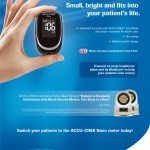
Available at your local Costco warehouse. Not available for purchase on Costco.com.
The post ACCU-CHEK? Nano Diabetes Monitoring Kit appeared first on Spring 2015 Issue | CDiabetes Online Magazine.
]]>
Available at your local Costco warehouse.
Not available for purchase on Costco.com.
The post ACCU-CHEK? Nano Diabetes Monitoring Kit appeared first on Spring 2015 Issue | CDiabetes Online Magazine.
]]>
Childhood obesity can?lead to short- and long-term?health problems—?such as high blood?pressure and diabetes—?that can start at an early?age. We all want the best?for our children. But?today, it’s not easy to?avoid many unhealthy?eating and activity habits?that can make our kids?weigh more than they?should. For example,?sweetened drinks, sugary?cereals, high-fat snacks?and fast foods add extra?calories. Those extra?calories do not burn off if?your child spends hours?each day in front of the?television or computer?rather than being active.?It also means your child?is not toning his or her?most important muscle:?the heart. Parents can play an?important role in helping?their kids adopt heart-healthy?habits early in life.?One of the best ways to?do that is to set a heart-healthy?example. Children?copy what mom and?dad do. Here are some?tips from the American?Academy of Pediatrics that?you and your family can?use to fight childhood?and/or teen obesity. 1 Fast food, takeout and?eating out can contribute?extra calories if the items?you choose are high in fat;?are made with unhealthy?cooking methods, such as?deep frying; come in extra?large portions; or have rich?sauces and dressings. Also, try to avoid multi-tasking?and eating, which means?walking around the mall?while sipping a milkshake?or munching on a bag of?fries. Just because you’re?walking as you’re eating,?doesn’t mean you burn all?the calories you take in. 2 Avoid sugar-sweetened?drinks, including sodas,?sweetened teas, smoothies?and shakes, special waters?and even juices that are high?in calories. Try plain water?or low- or non-fat milk. If?your child wants chocolate?milk on occasion, just add a?little syrup or powder, not a?big spoonful. Make a sugary?drink a once-a-week special?treat, not a daily staple. Get?rid of soda in your fridge, as?it has no health value, but?can pack on the calories. 3 If you are concerned?about your child’s weight,?talk with your pediatrician. 4 Keep fresh fruits?and vegetables on hand?to reach the goal of five?servings per day. 5 Cooking at home as?a family is not only fun,?it gives you better control?over what you eat, how your?food is cooked and what?portion sizes you serve. 6 Exclusively breastfeed?your baby until at least six?months, and once solid food?is started, keep nursing until?your child’s first birthday 7 Eat a diet rich in?calcium for healthy bones?and rich in fiber to promote?digestion and reduce hunger.?Include fish in your diet?a few times a week and?select lean cuts of meat. 8 Set a two-hour limit?for time spent texting?or sitting in front of the?computer or television. 9 Try to eat meals together?as a family. If you eat alone?or eat at odd hours, you can?develop bad habits, such?as between-meal snacking,?grazing, meals eaten on the?run and too many desserts.?Nibbling can add up quickly?to an unhealthy diet. 10 Exercise at least an hour?daily. You can break that up?into smaller chunks during?the day. For a fun activity,?take an early-morning walk?or after-dinner jog as a family.?Go around the block, to the?park or through the mall. 11 Make breakfast a daily?habit. Your children will?perform better at school if?they have a solid breakfast.?That does not mean a snack?bar or high-fat bakery item.?Breakfast should include whole?grain bread or non-sugary?cereals; some form of protein,?such as low-fat cheese, yogurt,?or eggs (use two whites for?every yolk); and fresh fruit.?Pack your child’s lunch with?healthy snacks for the day,?such as bite-sized vegetables,?string cheese, fresh fruit or a?cut-up pita and hummus. 12 Once you finish eating,?leave the table and move?your discussion elsewhere so?you are less tempted to keep?snacking on leftovers and?second or third helpings. These are just a few of the?ways you can bring heart-healthy?habits to your family. The added bonus is that you?will be more heart-healthy, too. By Linda Bernstein, PharmD
The post Set A Heart-Healthy Example appeared first on Spring 2015 Issue | CDiabetes Online Magazine.
]]>
Childhood obesity can?lead to short- and long-term?health problems—?such as high blood?pressure and diabetes—?that can start at an early?age. We all want the best?for our children. But?today, it’s not easy to?avoid many unhealthy?eating and activity habits?that can make our kids?weigh more than they?should. For example,?sweetened drinks, sugary?cereals, high-fat snacks?and fast foods add extra?calories. Those extra?calories do not burn off if?your child spends hours?each day in front of the?television or computer?rather than being active.?It also means your child?is not toning his or her?most important muscle:?the heart.
Parents can play an?important role in helping?their kids adopt heart-healthy?habits early in life.?One of the best ways to?do that is to set a heart-healthy?example. Children?copy what mom and?dad do. Here are some?tips from the American?Academy of Pediatrics that?you and your family can?use to fight childhood?and/or teen obesity.
1 Fast food, takeout and?eating out can contribute?extra calories if the items?you choose are high in fat;?are made with unhealthy?cooking methods, such as?deep frying; come in extra?large portions; or have rich?sauces and dressings. Also, try to avoid multi-tasking?and eating, which means?walking around the mall?while sipping a milkshake?or munching on a bag of?fries. Just because you’re?walking as you’re eating,?doesn’t mean you burn all?the calories you take in.
2 Avoid sugar-sweetened?drinks, including sodas,?sweetened teas, smoothies?and shakes, special waters?and even juices that are high?in calories. Try plain water?or low- or non-fat milk. If?your child wants chocolate?milk on occasion, just add a?little syrup or powder, not a?big spoonful. Make a sugary?drink a once-a-week special?treat, not a daily staple. Get?rid of soda in your fridge, as?it has no health value, but?can pack on the calories.
3 If you are concerned?about your child’s weight,?talk with your pediatrician.
4 Keep fresh fruits?and vegetables on hand?to reach the goal of five?servings per day.
5 Cooking at home as?a family is not only fun,?it gives you better control?over what you eat, how your?food is cooked and what?portion sizes you serve.
6 Exclusively breastfeed?your baby until at least six?months, and once solid food?is started, keep nursing until?your child’s first birthday
7 Eat a diet rich in?calcium for healthy bones?and rich in fiber to promote?digestion and reduce hunger.?Include fish in your diet?a few times a week and?select lean cuts of meat.
8 Set a two-hour limit?for time spent texting?or sitting in front of the?computer or television.
9 Try to eat meals together?as a family. If you eat alone?or eat at odd hours, you can?develop bad habits, such?as between-meal snacking,?grazing, meals eaten on the?run and too many desserts.?Nibbling can add up quickly?to an unhealthy diet.
10 Exercise at least an hour?daily. You can break that up?into smaller chunks during?the day. For a fun activity,?take an early-morning walk?or after-dinner jog as a family.?Go around the block, to the?park or through the mall.
11 Make breakfast a daily?habit. Your children will?perform better at school if?they have a solid breakfast.?That does not mean a snack?bar or high-fat bakery item.?Breakfast should include whole?grain bread or non-sugary?cereals; some form of protein,?such as low-fat cheese, yogurt,?or eggs (use two whites for?every yolk); and fresh fruit.?Pack your child’s lunch with?healthy snacks for the day,?such as bite-sized vegetables,?string cheese, fresh fruit or a?cut-up pita and hummus.
12 Once you finish eating,?leave the table and move?your discussion elsewhere so?you are less tempted to keep?snacking on leftovers and?second or third helpings.
These are just a few of the?ways you can bring heart-healthy?habits to your family.
The added bonus is that you?will be more heart-healthy, too.
By Linda Bernstein, PharmD
The post Set A Heart-Healthy Example appeared first on Spring 2015 Issue | CDiabetes Online Magazine.
]]>
The post Colgate Total? Toothpaste appeared first on Spring 2015 Issue | CDiabetes Online Magazine.
]]>
The post Colgate Total? Toothpaste appeared first on Spring 2015 Issue | CDiabetes Online Magazine.
]]>
You may think you’ve heard?all of the benefits of walking,?including: lower blood glucose lower blood pressure lower levels of stress and?depression But new findings from?the “Nurses’ Health Study,”?conducted by Harvard?Medical School, show?that women especially?can benefit from walking,?and even from?standing and walking?around at home instead?of sitting. This large study?of women and health also?offers some information?about what helped women?choose and stick with walking?for exercise. Researchers found?that women who lived in safe?areas with neighbors close by?were more likely to walk. But?even if you do not live where?you can easily or safely walk, you?can walk around the inside of?your house, on a treadmill or in?a mall. You can also ask a family?member or a neighbor to walk?with you. Or, take a walk on your?lunch break with a co-worker. Walking is an activity that most people can do, and it can add to both the length and quality of your life. Start with 10 to 15 minutes and try to walk faster and for a longer amount of time each week. WALKING CAN HELP ADDRESS?MANY HEALTH ISSUES By Martha Funnell, MS, RN, CDE
The post Walking Really Can Help appeared first on Spring 2015 Issue | CDiabetes Online Magazine.
]]>
You may think you’ve heard?all of the benefits of walking,?including:
- lower blood glucose
- lower blood pressure
- lower levels of stress and?depression
But new findings from?the “Nurses’ Health Study,”?conducted by Harvard?Medical School, show?that women especially?can benefit from walking,?and even from?standing and walking?around at home instead?of sitting. This large study?of women and health also?offers some information?about what helped women?choose and stick with walking?for exercise. Researchers found?that women who lived in safe?areas with neighbors close by?were more likely to walk. But?even if you do not live where?you can easily or safely walk, you?can walk around the inside of?your house, on a treadmill or in?a mall. You can also ask a family?member or a neighbor to walk?with you. Or, take a walk on your?lunch break with a co-worker.
Walking is an activity that most people can do, and it can add to both the length and quality of your life. Start with 10 to 15 minutes and try to walk faster and for a longer amount of time each week.
WALKING CAN HELP ADDRESS?MANY HEALTH ISSUES
Did you know that walking lowers both?blood glucose and insulin resistance? The?Nurses’ Health Study showed that walking?briskly for 30 minutes each day lowers the?risk of diabetes by 30 percent. Standing or?walking around the house for two hours a day?lowered the risk for diabetes by 12 percent?and obesity by 9 percent. And walking for?one hour each day lowers the risk of obesity?by 24 percent. On the other hand, sitting?at work, driving or watching TV for long?periods raised the risk for type 2 diabetes.
2?HEART DISEASE
Women with type 2 diabetes who?exercised, including brisk walking for more than?4 hours per week, had about a 40 percent lower?risk of heart disease. Women who walked faster?had less risk. This means that walking helps?to prevent heart disease, which is the leading?cause of death among people with diabetes.
This study defined healthy aging as long?life combined with good memory, good physical?ability, good mental health and no major?chronic diseases. Women who were part of this?study who walked for 90 minutes each week maintained their memory over time better than?those who did not. They also increased their?chances of healthy aging by about 15 to 20?percent.
4?BREAST AND COLON CANCER
Women who walked for five hours per?week had a 9 percent lower risk of breast cancer?compared with women who did not exercise. In?addition, women who walked three to five hours?per week after they were diagnosed with breast?cancer were at a 50 percent lower risk of death?from their disease.
Women who walked more than one hour per?week had about a 30 percent lower risk for colon?cancer. Women who walked at least five hours?per week had about a 20 percent lower risk for?colon polyps, which can lead to colon cancer.?Walking faster lowered the risk for both colon?polyps and colon cancer.
By Martha Funnell, MS, RN, CDE
The post Walking Really Can Help appeared first on Spring 2015 Issue | CDiabetes Online Magazine.
]]>
Good news: You can help improve?your diet and control your?diabetes if you write down what?you eat. You may even lose weight?if you record all of your meals and?snacks in a food journal. Have?you ever kept a personal diary or?even a journal? Just as your diary helps you sort?out your thoughts, a food journal?can help you figure out what?foods to add or take out of your?meal plan. FOOD JOURNAL BENEFITS When you honestly write down?what you eat, you will see clues?that will help you improve your?meal plan. A food journal will?allow you to: See your eating patterns and?help you and your healthcare?provider determine any dietary?changes you may need. Find out what foods affect?your blood glucose levels and?pinpoint why you didn’t lose?weight, or why your blood?glucose levels are high or low at?certain times. Figure out why you’re hungry?in the mid-afternoon or why you?overeat during dinner. A food journal can help you see?how your food affects your blood?glucose levels and your moods. You can change what you eat and?improve your health. Keeping a?food journal can help you take—?and maintain— control of your?diabetes. GETTING STARTED WITH YOUR FOOD JOURNAL Weigh and measure your food for two weeks. Buy a food scale, measuring cups and measuring spoons. Buy both dry?and liquid measuring tools for precise measuring. When you measure and weigh your food, you’ll see exactly how much you’re eating—and whether it’s above the average serving size. You’ll also be able to figure out if you eat too much at some point during the day and not enough at another time. Write down what you eat each day. You will be able to see how your food plan, exercise program and diabetes medication (or insulin) work together. Write down when you eat both meals and snacks as soon as possible. Just in case you don’t remember what you ate for breakfast by dinner time. Don’t worry if you ate a little more than you planned. You will learn how to make better choices as time goes on. Use a notebook that is easy to carry with you. Or try a free online-based food journal, such as myfitnesspal.com, or a phone app such as Foods and Moods. In Your Food Journal… 1 List the foods you eat and when you eat them. Be as honest as possible. You might not want to admit to all of your menu choices at first. But you will gain so much more from this if you do. When you review your foods, you will most likely start to make better meal and snack choices in a short time. Include how you feel and what you think about your diet. For example, you might stuff a cookie in your mouth to soothe stress at work. If you write down all of the food you eat—even cookies and candy—you’ll have a greater awareness of your eating habits. You’ll also be able to figure out if you eat because of an emotion, stress, boredom or need. 2 Rate your hunger on a scale from 1 to 10 before you eat. If you rate your hunger at a 1 or 2, then you might not really be hungry. If that’s the case, enjoy a glass of water instead. Also, write down how much water you drink each day. 3 Write about your food likes and dislikes. Meet with your healthcare provider and/or a registered dietitian who is also a certified diabetes educator to discuss your food choices and dislikes. For example, your healthcare provider might have suggested to you to eat more fish to increase your intake of heart-healthy omega-3 fatty acids. But what if you don’t like fish? You can discuss another source of omega-3s such as a few walnuts in your salad for a rich omega-3 treat. 4 Write about your emotions or how you feel about food. This will help you figure out if you eat after a stressful phone call or out of boredom. Do you eat while you do other things? Many people eat more when they watch TV or talk on the phone. You can watch your food intake more closely when you sit at the table and enjoy your meal. By Susan Weiner,?RD, MS, CDE, CDN
The post Keep A Food Journal For Diabetes Control appeared first on Spring 2015 Issue | CDiabetes Online Magazine.
]]>
Good news: You can help improve?your diet and control your?diabetes if you write down what?you eat. You may even lose weight?if you record all of your meals and?snacks in a food journal. Have?you ever kept a personal diary or?even a journal?
Just as your diary helps you sort?out your thoughts, a food journal?can help you figure out what?foods to add or take out of your?meal plan.
FOOD JOURNAL BENEFITS
When you honestly write down?what you eat, you will see clues?that will help you improve your?meal plan. A food journal will?allow you to:
- See your eating patterns and?help you and your healthcare?provider determine any dietary?changes you may need.
- Find out what foods affect?your blood glucose levels and?pinpoint why you didn’t lose?weight, or why your blood?glucose levels are high or low at?certain times.
- Figure out why you’re hungry?in the mid-afternoon or why you?overeat during dinner.
A food journal can help you see?how your food affects your blood?glucose levels and your moods.
You can change what you eat and?improve your health.
Keeping a?food journal can help you take—?and maintain— control of your?diabetes.
GETTING STARTED WITH YOUR FOOD JOURNAL
- Weigh and measure your food for two weeks. Buy a food scale, measuring cups and measuring spoons. Buy both dry?and liquid measuring tools for precise measuring. When you measure and weigh your food, you’ll see exactly how much you’re eating—and whether it’s above the average serving size. You’ll also be able to figure out if you eat too much at some point during the day and not enough at another time.
- Write down what you eat each day. You will be able to see how your food plan, exercise program and diabetes medication (or insulin) work together.
- Write down when you eat both meals and snacks as soon as possible. Just in case you don’t remember what you ate for breakfast by dinner time.
- Don’t worry if you ate a little more than you planned. You will learn how to make better choices as time goes on.
- Use a notebook that is easy to carry with you. Or try a free online-based food journal, such as myfitnesspal.com, or a phone app such as Foods and Moods.
In Your Food Journal…
1 List the foods you eat and when you eat them. Be as honest as possible. You might not want to admit to all of your menu choices at first. But you will gain so much more from this if you do. When you review your foods, you will most likely start to make better meal and snack choices in a short time. Include how you feel and what you think about your diet. For example, you might stuff a cookie in your mouth to soothe stress at work. If you write down all of the food you eat—even cookies and candy—you’ll have a greater awareness of your eating habits. You’ll also be able to figure out if you eat because of an emotion, stress, boredom or need.
2 Rate your hunger on a scale from 1 to 10 before you eat. If you rate your hunger at a 1 or 2, then you might not really be hungry. If that’s the case, enjoy a glass of water instead. Also, write down how much water you drink each day.
3 Write about your food likes and dislikes. Meet with your healthcare provider and/or a registered dietitian who is also a certified diabetes educator to discuss your food choices and dislikes. For example, your healthcare provider might have suggested to you to eat more fish to increase your intake of heart-healthy omega-3 fatty acids. But what if you don’t like fish? You can discuss another source of omega-3s such as a few walnuts in your salad for a rich omega-3 treat.
4 Write about your emotions or how you feel about food. This will help you figure out if you eat after a stressful phone call or out of boredom.
Do you eat while you do other things? Many people eat more when they watch TV or talk on the phone.
You can watch your food intake more closely when you sit at the table and enjoy your meal.
By Susan Weiner,?RD, MS, CDE, CDN
The post Keep A Food Journal For Diabetes Control appeared first on Spring 2015 Issue | CDiabetes Online Magazine.
]]>
Daybreak Scramble Pizza ?
The post Healthy Guilt-Free Recipes: Daybreak Scramble Pizza appeared first on Spring 2015 Issue | CDiabetes Online Magazine.
]]>
Daybreak Scramble Pizza

Makes 10 Servings
1 tablespoon margarine
2 cups liquid egg whites
? teaspoon salt
? teaspoon black pepper
1 (10-ounce) package prebaked whole-wheat pizza crust
1-1? cups frozen vegetables (broccoli, spinach, and red bell peppers, or a combination of your favorites), thawed
3/4 cup 75% reduced fat shredded Cheddar cheese
2 frozen turkey sausage patties, thawed and cut into bite-sized pieces
Calories from Fat 35, Total Fat 4 g, Saturated Fat 1.4 g, Trans Fat 0 g, Cholesterol 10 mg, Sodium 400 mg, Potassium 225 mg, Total Carbohydrate 16 g, Dietary Fiber 3 g, Sugars 2 g, Protein 12 g, Phosphorus 135 mg Exchanges: 1 Starch 1 Medium-Fat Meat

1. Preheat oven to 400°F. Coat a 10- x 15-inch baking sheet with cooking spray.
2. In a large skillet, melt margarine over medium heat. Add egg whites, salt, and pepper; scramble and cook until eggs are firm.
3. Spoon scrambled eggs over crust; top evenly with vegetables, cheese, and sausage pieces.
4. Bake 8 to 10 minutes, or until cheese is melted. Slice and serve.
Test Kitchen Tip: If using uncooked turkey sausage, brown it before cutting into bite-sized pieces. Also, when testing this recipe, we used the 75% reduced-fat variety of Cabot Cheddar cheese.
?
The post Healthy Guilt-Free Recipes: Daybreak Scramble Pizza appeared first on Spring 2015 Issue | CDiabetes Online Magazine.
]]>
Blueberry Banana Yogurt?Parfaits
The post Healthy Guilt-Free Recipes: Blueberry Banana Yogurt?Parfaits appeared first on Spring 2015 Issue | CDiabetes Online Magazine.
]]>
Blueberry Banana Yogurt?Parfaits

Makes 4 servings
1 cup low-fat granola
4 cups fresh or frozen blueberries
2 cups nonfat banana yogurt
Evenly divide and layer ingredients into four glasses, starting with granola, then blueberries, then yogurt; repeat layers. Top with a bit of fresh mint to give this a super fresh taste without adding any additional calories.
NUTRITION INFORMATION PER SERVING:
Calories 290, Calories from Fat 20, Total Fat 2g, Saturated Fat 0.5 g, Trans Fat 0.g, Cholesterol 0 mg, Sodium 135 mg, Potassium 220 mg, Total Carbohydrate 64 g, Dietary Fiber 5 g, Sugars 45 g, Protein 9 g, Phosphorus 410 mg
Exchanges:
1? Starch, 1? Fruit, 1 Fat-Free Milk
The post Healthy Guilt-Free Recipes: Blueberry Banana Yogurt?Parfaits appeared first on Spring 2015 Issue | CDiabetes Online Magazine.
]]>
Guilt-Free Taco Bowl
The post Healthy Guilt-Free Recipes: Guilt-Free Taco Bowl appeared first on Spring 2015 Issue | CDiabetes Online Magazine.
]]>
Guilt-Free Taco Bowl

NUTRITION INFORMATION PER SERVING:
Calories 355, Calories from Fat 110, Total Fat 12 g, Saturated Fat 2.8 g, Trans Fat 0 g, Cholesterol 50 mg, Sodium 600 mg, Potassium 650 mg, Total Carbohydrate 38 g, Dietary Fiber 5 g, Sugars 9 g, Protein 29 g, Phosphorus 375 mg
Exchanges:
1? Starch, ? Carbohydrate, 1 Vegetable, 3 Lean Meat, 1 Fat
Makes 4 servings
4 (8-inch) whole-wheat flour tortillas, at room temperature Cooking spray
3/4 pound lean ground turkey breast
1? tablespoons no-added salt taco seasoning
1/3 cup water
? head iceberg lettuce, shredded (about 4 cups)
1 tomato, diced
1 green bell pepper, diced
? cup (1 ounce) reduced-fat shredded Cheddar cheese
? cup reduced-fat
French dressing
1. Preheat oven to 425°F.
Place 4 ovenproof soup bowls on a rimmed baking sheet. Coat both sides of each tortilla with cooking spray.
2. Carefully line one tortilla into each bowl. Place another ovenproof bowl on top of each tortilla. Bake 7 to 9 minutes, or until tortillas hold their shape.
Carefully remove top bowls and bake tortillas (still in the bottom bowls) 3 to 4 additional minutes, or until tortillas are crisp and golden. (If you don’t have enough bowls, bake these one or two at a time.) Remove tortillas from bowls and allow to cool on a wire rack.
3. In a medium skillet over medium-high heat, cook turkey breast 8 to 10 minutes, or until no pink remains. Drain off excess liquid. Stir in taco seasoning and water; reduce heat to low, and simmer 5 minutes.
4. Right before serving, place tortilla shells on a dinner plate and fill each 3/4 full with lettuce. Add ? cup turkey mixture, then sprinkle evenly with tomatoes, green peppers, and cheese. Drizzle 2 tablespoons French dressing on top. Serve immediately.
The post Healthy Guilt-Free Recipes: Guilt-Free Taco Bowl appeared first on Spring 2015 Issue | CDiabetes Online Magazine.
]]>